I read a lot.
In fact, usually a book a week. I love learning and my curiosity about life is seemingly endless. Of course, I recommend books often, so I created this page to house a virtual library and book guide for anyone looking to see what I am reading now and over the past few years.
Ina Garten
Be Ready When the Luck Happens
In her memoir, Ina Garten shares her journey from government work to culinary fame, emphasizing the importance of seizing opportunities and following one’s passion. Her reflections on embracing change and pursuing what you love were both inspiring and heartwarming. After a year of political divisiveness and conflict, this is exactly the kind of book I needed to get lost in. I’m so glad I finished off 2024 with Ina!
- Find it at a local book seller.
- Buy it used on Amazon.
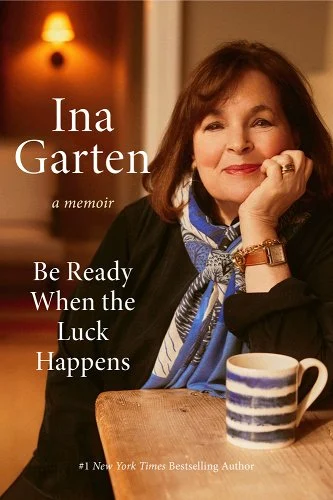
Emily Nagoski
Come Together: The Science (and Art!) of Creating Lasting Sexual Connections
Emily Nagoski delves into maintaining a fulfilling sexual connection in long-term relationships, combining scientific research with practical advice. Her emphasis on communication and understanding within partnerships provided valuable insights into nurturing intimacy. Keeping a sexual connection over years, decades even, is challenging but not impossible. I loved her refreshing, optimistic and honest approach.
- Find it at a local book seller.
- Buy it used on Amazon.
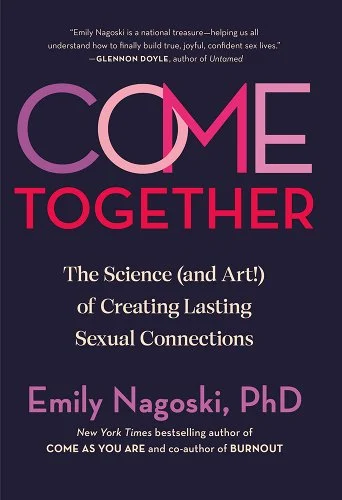
Scott Barry Kaufman
Transcend: The New Science of Self-Actualization
Scott Barry Kaufman reimagines Maslow’s hierarchy of needs, introducing a ‘sailboat’ model to illustrate the journey toward self-actualization. I now use this model regularly in my coaching practice! His blend of humanistic psychology with contemporary research offered a transformative framework for personal growth and fulfillment.
- Find it at a local book seller.
- Buy it used on Amazon.
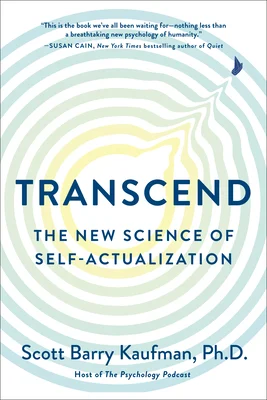
Ethan Mollick
Co-Intelligence: Living and Working with AI
Ethan Mollick’s examination of human-AI collaboration sheds light on harnessing this emerging (and quickly developing) technology to tackle complex challenges but also everyday tasks. The book’s insights for when and how to leverage AI for innovation and problem-solving (and when not to) provided a positive and forward-thinking perspective on the evolving dynamics of technology.
- Find it at a local book seller.
- Buy it used on Amazon.
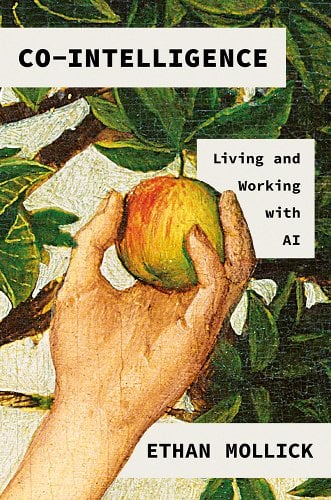
Ryan Holiday
Right Thing, Right Now
In this continuation of his exploration of Stoic virtues, Ryan Holiday emphasizes the importance of immediate action aligned with moral integrity. His stories of historical figures practicing virtue helped me place these actions in the present moment. I resonated deeply with this book and felt inspired to live with greater purpose and ethical clarity.
- Find it at a local book seller.
- Buy it used on Amazon.

Melody Warnick
This Is Where You Belong: Finding Home Wherever You Are
Gosh, I loved this book. Inside you’ll find a blueprint for intentionally and deliberately creating a feeling of groundedness and connection wherever you call home. It’s filled with dozens of manageable “projects” for ways to lay deeper roots in your community and mine more satisfaction and meaning from your hometown.
- Find it at a local book seller.
- Buy it used on Amazon.
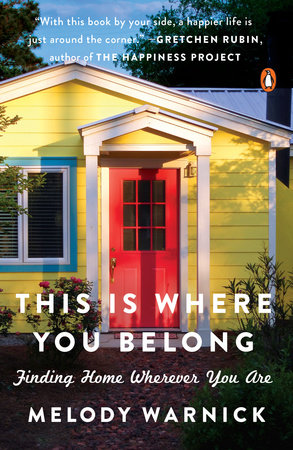
Thomas Erikson
Surrounded by Idiots: The Four Types of Human Behavior and How to Effectively Communicate with Each in Business (and in Life)
This book will not only give each reader a better understanding of themselves, but, more importantly, of everyone around them. With this understanding comes the power to adapt, to better collaborate, and to create more harmony in our relationships and on our teams.
- Find it at a local book seller.
- Buy it used on Amazon.
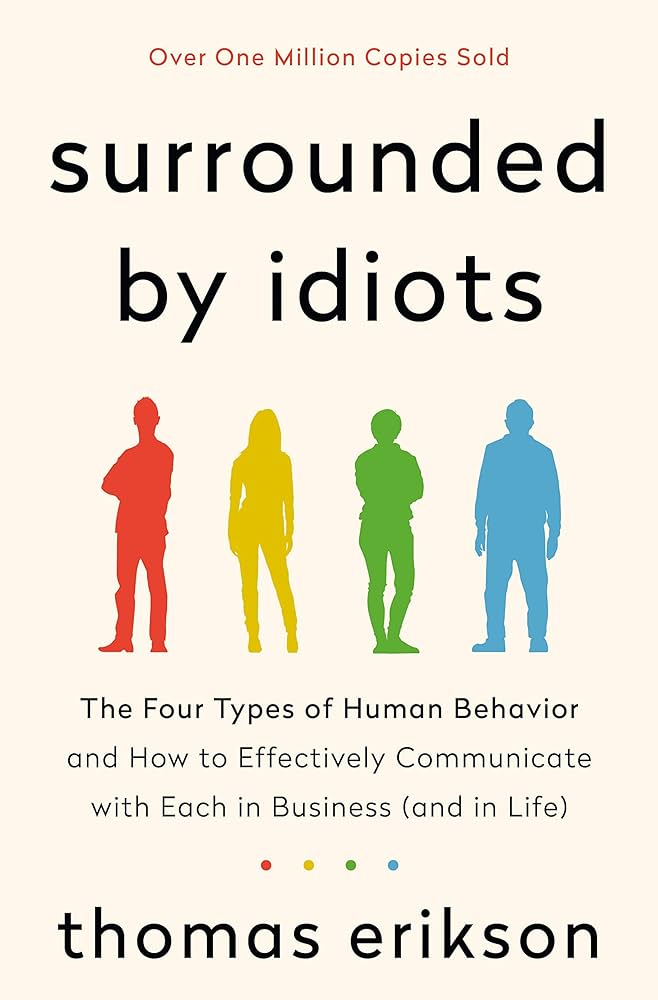
Kelly Starrett & Juliet Starrett
Built to Move: The Ten Essential Habits to Help You Move Freely and Live Fully
In a nutshell, we don’t operate in our full range of motion most of the time and this limits our ability to live fully. The authors offer ten fundamental things that we can each do to feel and move better. I loved how actionable and practical their approach is and I’ve been doing their exercises ever since I read the book this spring.
- Find it at a local book seller.
- Buy it used on Amazon.
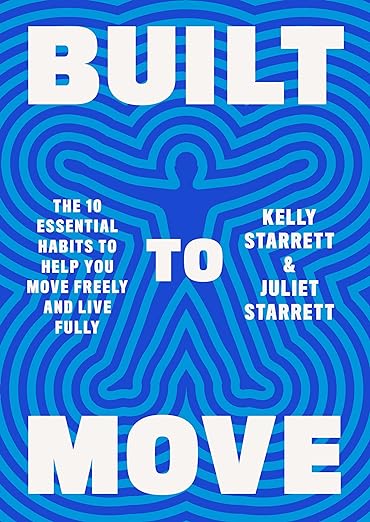
Stanley Tucci
Taste: My Life Through Food
I “read” this book via audiobook and I cannot recommend this method enough. Read (beautifully) by the author, this food memoir takes us through his favorite gastronomic experiences from childhood until recent years. My takeaway: eating our way through life, and appreciating all the ways our lives are enriched by food, is a wonderful way to live.
- Find it at a local book seller.
- Buy it used on Amazon.

Robert Fritz
The Path of Least Resistance: Learning to Become the Creative Force in Your Own Life
I’m not going to lie… I had to read this book twice before I really got it. And I still don’t fully grasp the concepts. That said, I think Robert Fritz offers a groundbreaking and transformative model for creating what we want in life, and valuable insights into why so many of us struggle to achieve our goals and aspirations. It’s a tough read but it was worth it.
- Find it at a local book seller.
- Buy it used on Amazon.

Lisa Genova
Remember: The Science of Memory and the Art of Forgetting
This is a wonderful book for anyone who has started to fret about their forgetfulness. Packed with science-backed insights and relatable stories, “Remember” does a deep dive into how memory works, what we can do to make it better, and why we (mostly) need to stop worrying about forgetting.
- Find it at a local book seller.
- Buy it used on Amazon.

Oliver Burkeman
Four Thousand Weeks
It’s unfortunate that some might pick up this book and think it’s about how to be more productive. It’s not. This is a book about how to live more fully, how to let go of our white-knuckled and relentless drive to get more done, and a gigantic permission slip for opting out of our cultural obsession with productivity. I loved it so much.
- Find it at a local book seller.
- Buy it used on Amazon.
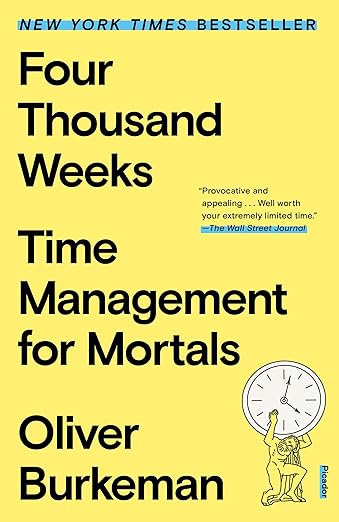
Lisa Damour Ph.D.
The Emotional Lives of Teenagers: Raising Connected, Capable, and Compassionate Adolescents
As a parent of two teenagers, I get a front row seat to the powerful emotional roller coaster that is typical of adolescence. As “normal” as this roller coaster is, it often leaves parents feeling overwhelmed, even scared. I loved this book because it helped me to understand normal adolescent emotional development and when to be concerned. I learned that mental health isn’t just about ‘feeling good,’ but about how we deal with and come back from tough feelings. The book offers strategies to support teens in managing their emotions and becoming psychologically aware, and it addressed common adolescent challenges like anxiety, risky behavior, and social media. This is such a helpful book to have on the shelf when you’re raising teens.
- Find it at a local book seller.
- Buy it used on Amazon.
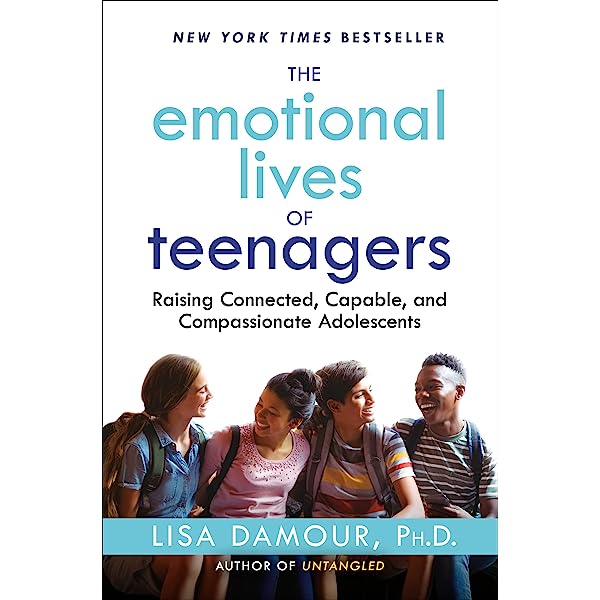
Parag Khanna
Move: Where People Are Going for a Better Future
In 60,000 years of human civilization, mobility has been constant. Global upheavals have only sped it up. As climate change escalates, mass migrations are imminent. Where will people go? Where will they settle? Celebrated futurist Parag Khanna envisions a mobile, sustainable future in “Move.” This book argues for open borders and guides us in finding our place in humanity’s evolving map. It gave a fascinating view of what lies ahead for our planet and all the ways we live will be changing. I could not put it down.
- Find it at a local book seller.
- Buy it used on Amazon.
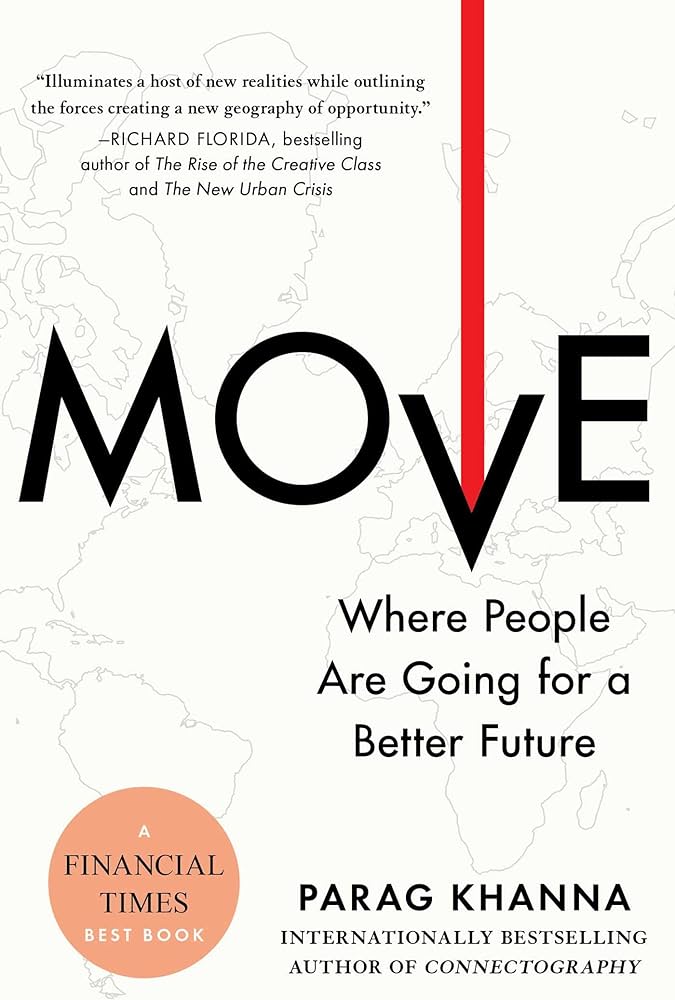
David Robson
The Expectation Effect: How Your Mindset Can Change Your World
In “The Expectation Effect,” science journalist David Robson unveils the powerful influence of our beliefs on reality. He explores cases where sham surgeries and positive outlooks impact health outcomes. Robson melds neuroscience with compelling narratives, showing how stress can enhance creativity and associating wisdom with aging extends life expectancy. While not magic, this book provides practical insights, grounded in psychology and physiology, to enhance fitness, productivity, intelligence, and happiness. It’s a must-read for those seeking to shape their own destiny.
- Find it at a local book seller.
- Buy it used on Amazon.
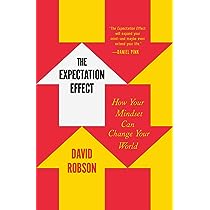
Gretchen Rubin
Life in Five Senses: How Exploring the Senses Got Me Out of My Head and Into the World
Gretchen Rubin, after a decade of studying happiness, had an epiphany on her way home from her eye doctor’s office: she’d been neglecting her senses. This realization led her on a transformative journey, exploring the power of seeing, hearing, smelling, tasting, and touching. In “Life in Five Senses,” Rubin delves into science, philosophy, and personal experiments, revealing how tuning into the physical world can lead to a happier, more mindful life. Through simple pleasures and immersive experiences, she guides readers towards a deeper, more connected existence, filled with vitality and love. I LOVED this book!
- Find it at a local book seller.
- Buy it used on Amazon.
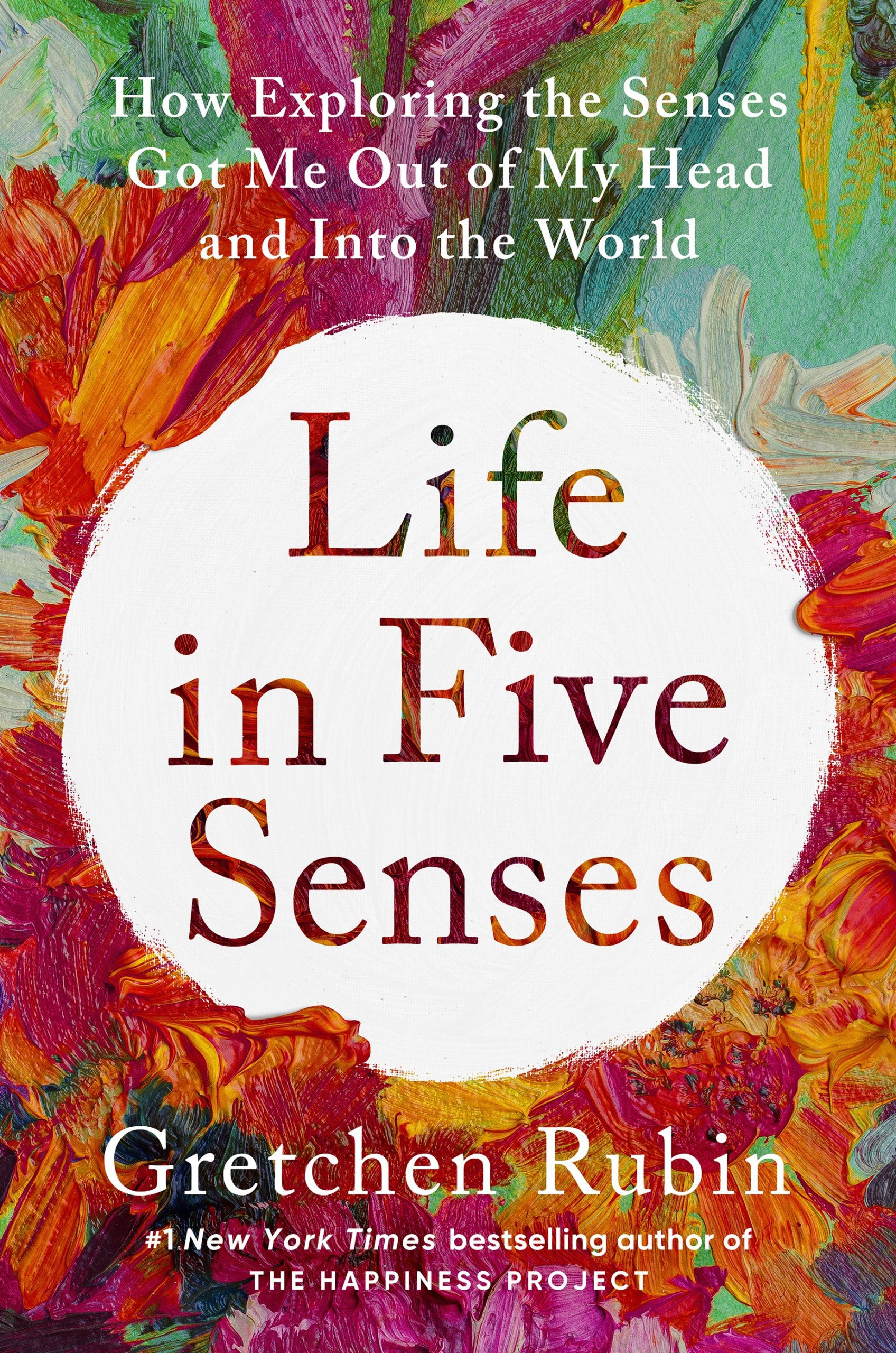
Jonathan Mooney
Normal Sucks
Part memoir, part manifesto, this book opened my eyes to how much our culture thrives on “othering” people. I learned that norms are a moving target and we can choose to unsubscribe to them. In fact, as Jonathon writes, “I’ve learned that normality and ability are false judges of my worth, your worth, and our worth.” Damn this book was good and so well-written!
- Find it at a local book seller.
- Buy it used on Amazon.
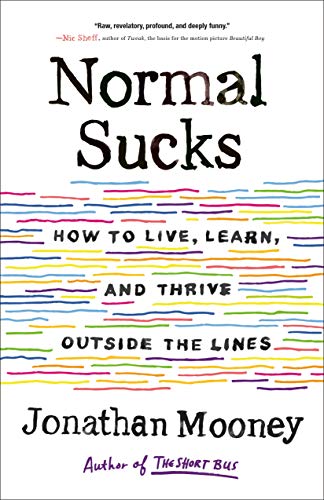
Christine Carter
The New Adolescence: Raising Happy and Successful Teens in an Age of Anxiety and Distraction
Having read Christine Carter’s previous books (Sweet Spot and Raising Happiness) I was sure I’d love this one… and I did! I have so much of this book underlined! It’s given me clarity and confidence as I navigate raising my two teenage girls.
- Buy it used on Amazon.
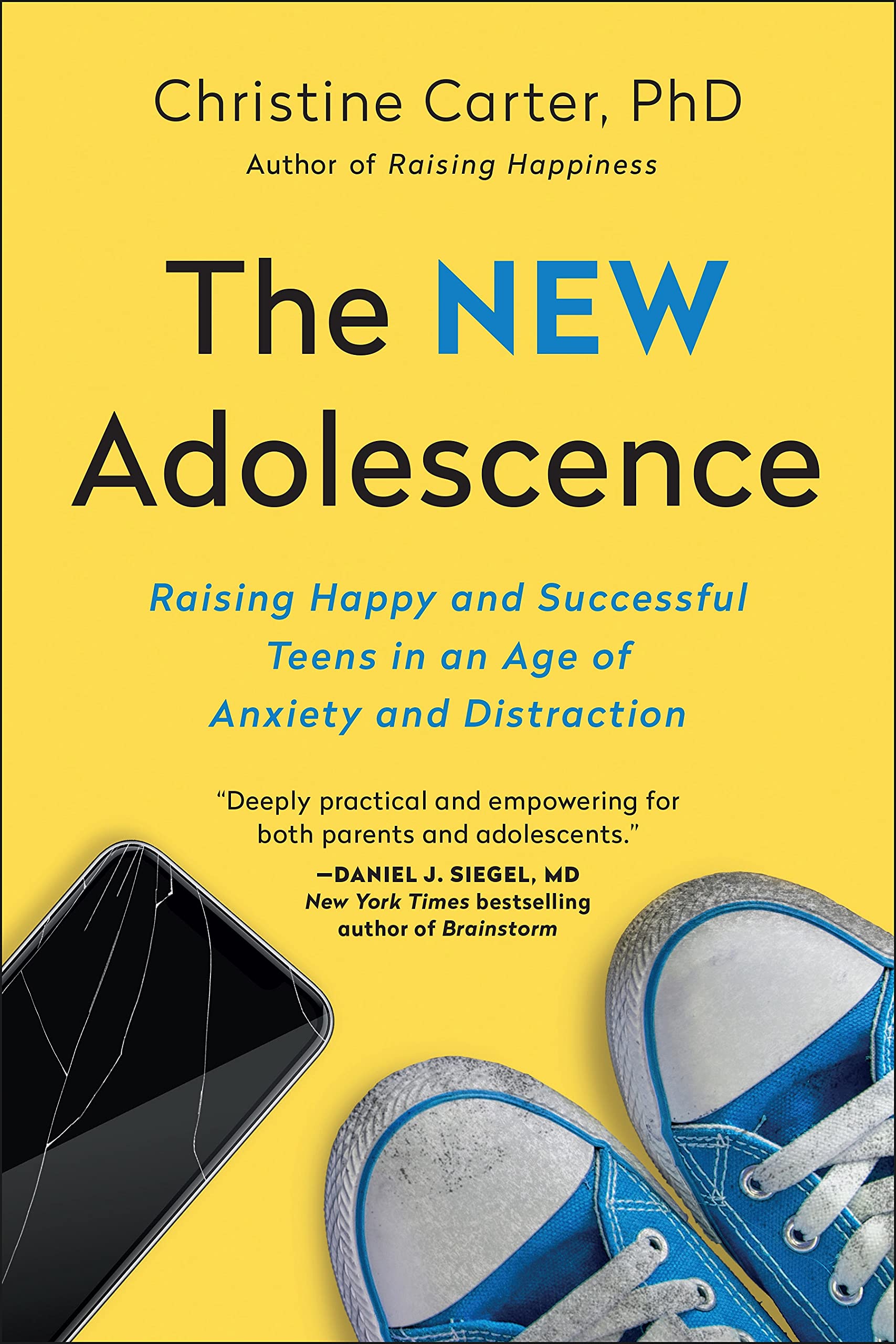
John V. Petrocelli
The Life-Changing Science of Detecting Bullshit
Reading this book is such a great way to learn how to navigate our over-informed digital landscape filled with so many “experts” and “studies” that it’s hard to know what’s true and what’s BS. I learned how to see through the BS better and how to stop sharing so much BS.
- Find it at a local book seller.
- Buy it used on Amazon.
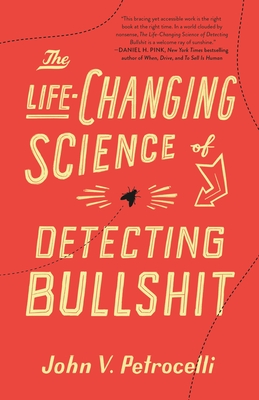
Atul Gawande
Being Mortal
Atul Gawande, a physician and writer, looks at how medicine now extends life but doesn’t do the best job at considering the things that make us feel alive. Through personal experiences with his patients and own family members, as well as case studies from innovative elderly care around the world, Atul invites us to look at our own vision for care when we can no longer care for ourselves and encourages us to expand what we think is possible.
- Find it at a local book seller.
- Buy it used on Amazon.
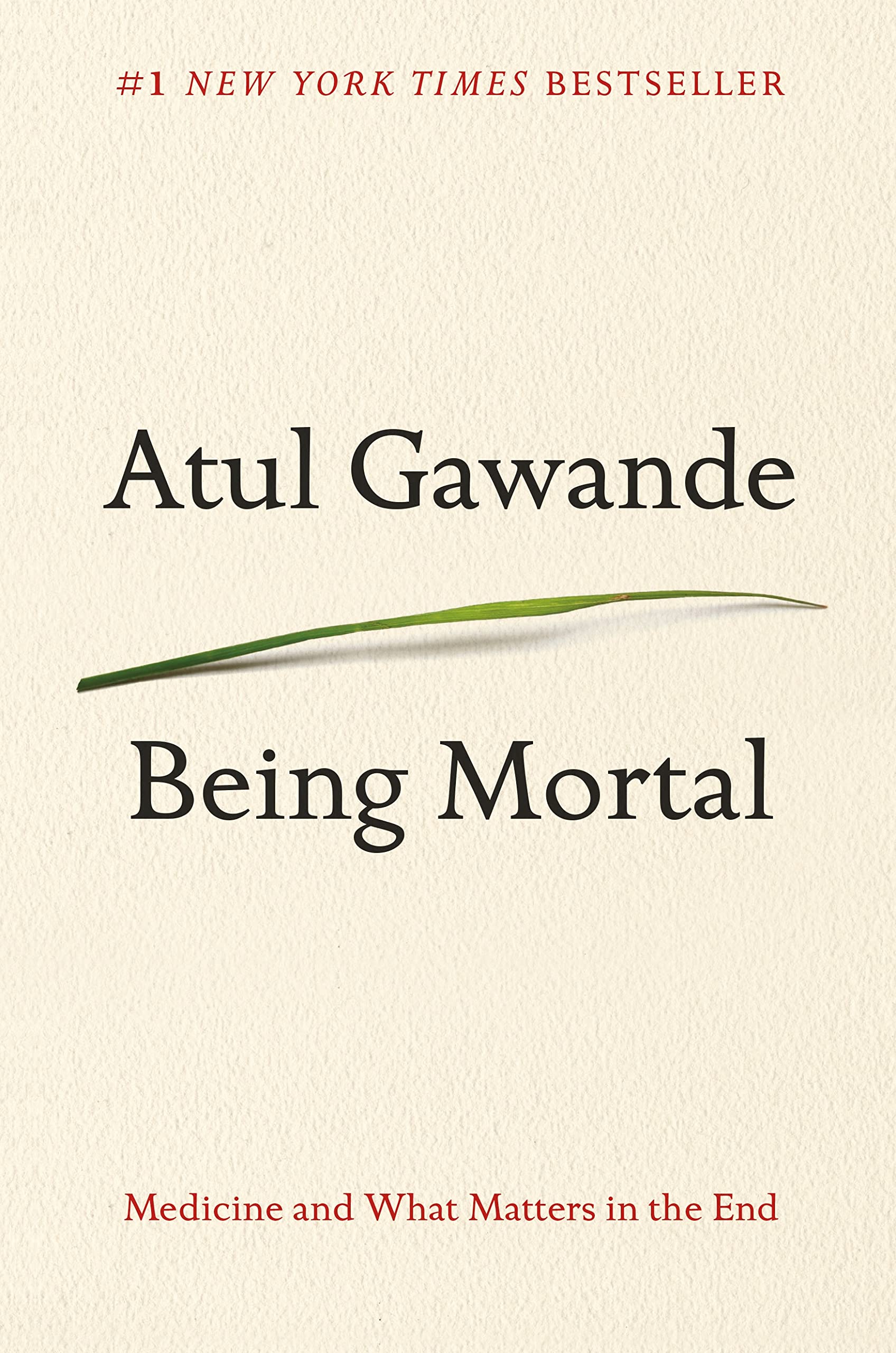
By Fleet Maull Ph.D.
Radical Responsibility: How to Move Beyond Blame, Fearlessly Live Your Highest Purpose, and Become an Unstoppable Force for Good
This is one of those books that should be required reading in high school. It’s easy to read and breaks down deep neuroscience and mindfulness topics into digestible concepts that can be easily integrated into the daily living of our lives. Taking radical responsibility for our lives means that we each do the work to train our own minds to be more self-aware, intentional and compassionate. This book offers the step-by-step process for discovering how we do this.
- Find it at a local book seller.
- Buy it used on Amazon.
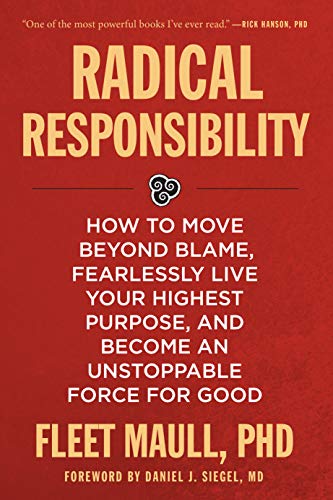
By Tom Vanderbilt
Beginners: The Joy and Transformative Power of Lifelong Learning
In a nutshell: the older we get, the more uncomfortable it is to be a beginner. We don’t like to look foolish or to feel like we don’t know what we’re doing. The trouble is, the more allergic we get to feeling like a newbie, the less new things we try, and the smaller our world becomes. As I read Tom’s book, I followed him along in his pursuit to learn chess, surfing, drawing, signing, swimming, and many more activities that stretched his capacity to stick with something even when it felt difficult. My big takeaway: be less of an engineer and more of a scientist. Persevere through the discomfort of being a beginner and you’ll live a richer, more meaningful life.
- Find it at a local book seller.
- Buy it used on Amazon.
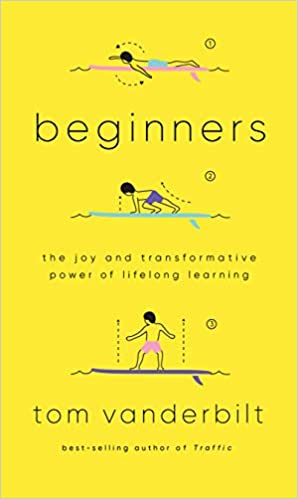
By Michael Pollan
How to Change Your Mind: What the New Science of Psychedelics Teaches Us About Consciousness, Dying, Addiction, Depression, and Transcendence
Michael Pollan explores the world of psychedelics (mostly LSD and mushrooms) for those seeking to reach new states of consciousness, manage anxiety and addiction, navigate grief and understand the world inside and around them. I loved his first-person perspective/experiences and the way he so curiously and open-mindedly approached the research that’s been conducted over the past 50+ years. I found about 60 pages of the modern history of psychedelics a little dry, but the book definitely got more intriguing and thought-provoking after that.
- Find it at a local book seller.
- Buy it used on Amazon.
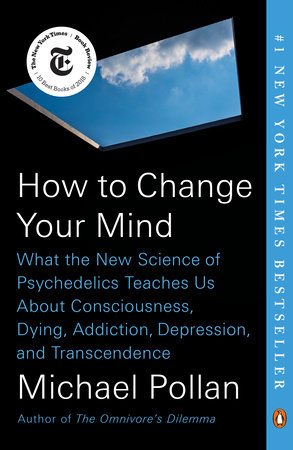
By Dorie Clark
The Long Game: How to Be a Long-Term Thinker in a Short-Term World
This is a book for anyone who has ever wondered how to stick with something when it feels like it’s taking too long. We need long-term thinking rather than always moving in quick pivots and fast fixes. Dorie Clark writes: “The challenge for all of us is an inner one: to keep going when it seems like no one is paying attention or cares. And to believe that eventually the world will catch up.” Key thoughts I loved in this book are: strategic patience; being in head down versus head up mode; and infinite horizon networking. Great book!
- Find it at a local book seller.
- Buy it used on Amazon.
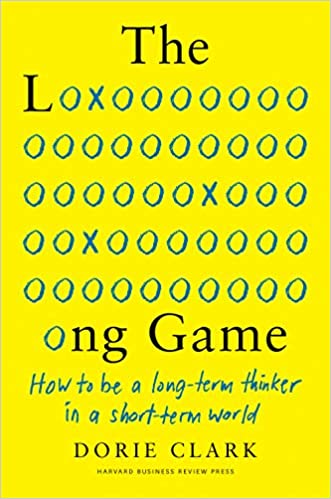
By Ryan Holiday
Stillness Is The Key
Short and quick chapters that are easy to digest but filled with deep insight make this book a favorite for my morning centering practice. Ryan Holiday is an excellent writer, teacher and storyteller. I have already recommended this book to many!
- Find it at a local book seller.
- Buy it used on Amazon.
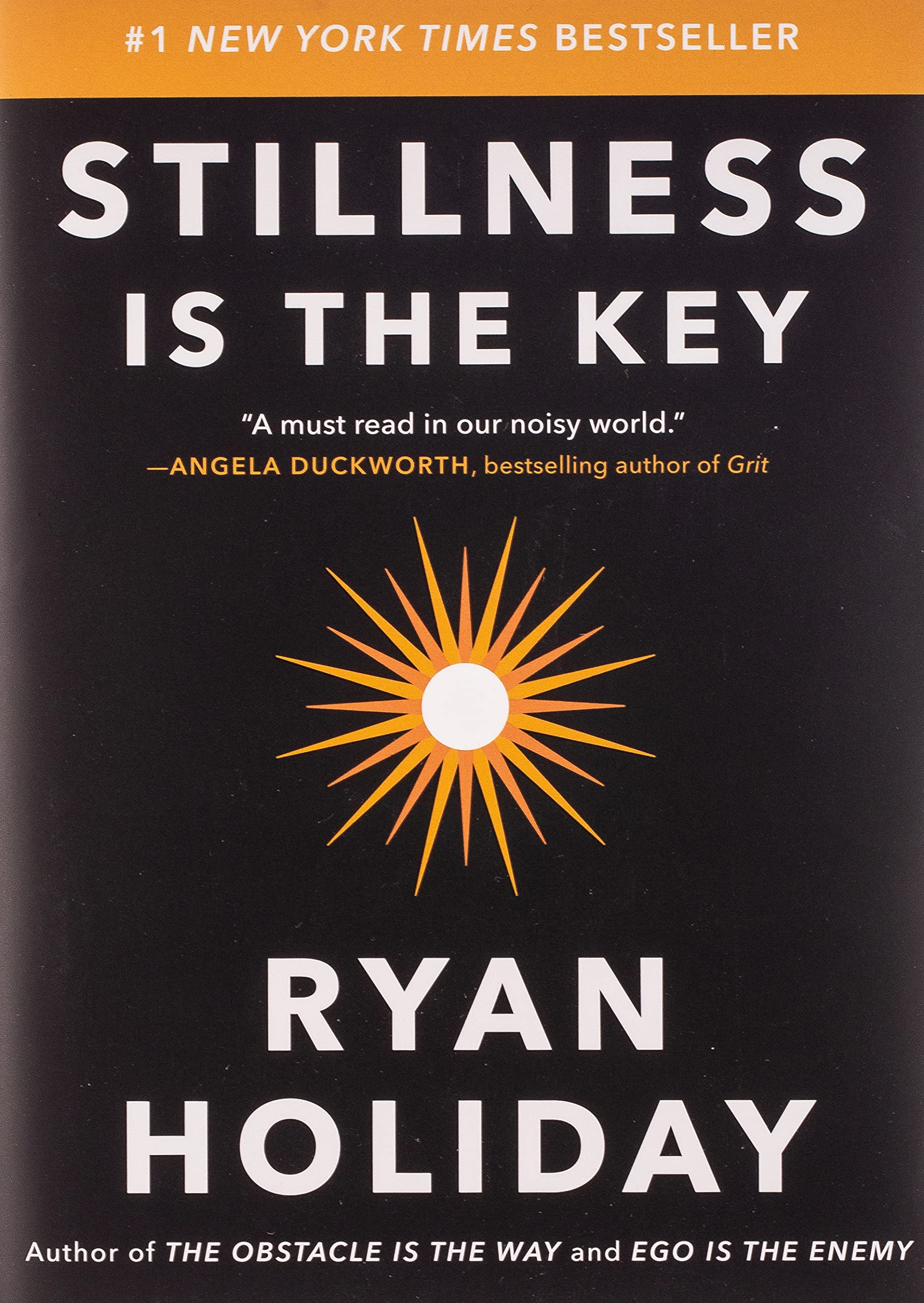
By Kirsteen MacLeod
In Praise of Retreat: Finding Sanctuary in the Modern World
Pure poetry! This book is magnificently written while making a strong case using historical reference and modern research as to why retreat needs to become a regular part of our lives. Love, love, love.
- Find it at a local book seller.
- Buy it used on Amazon.
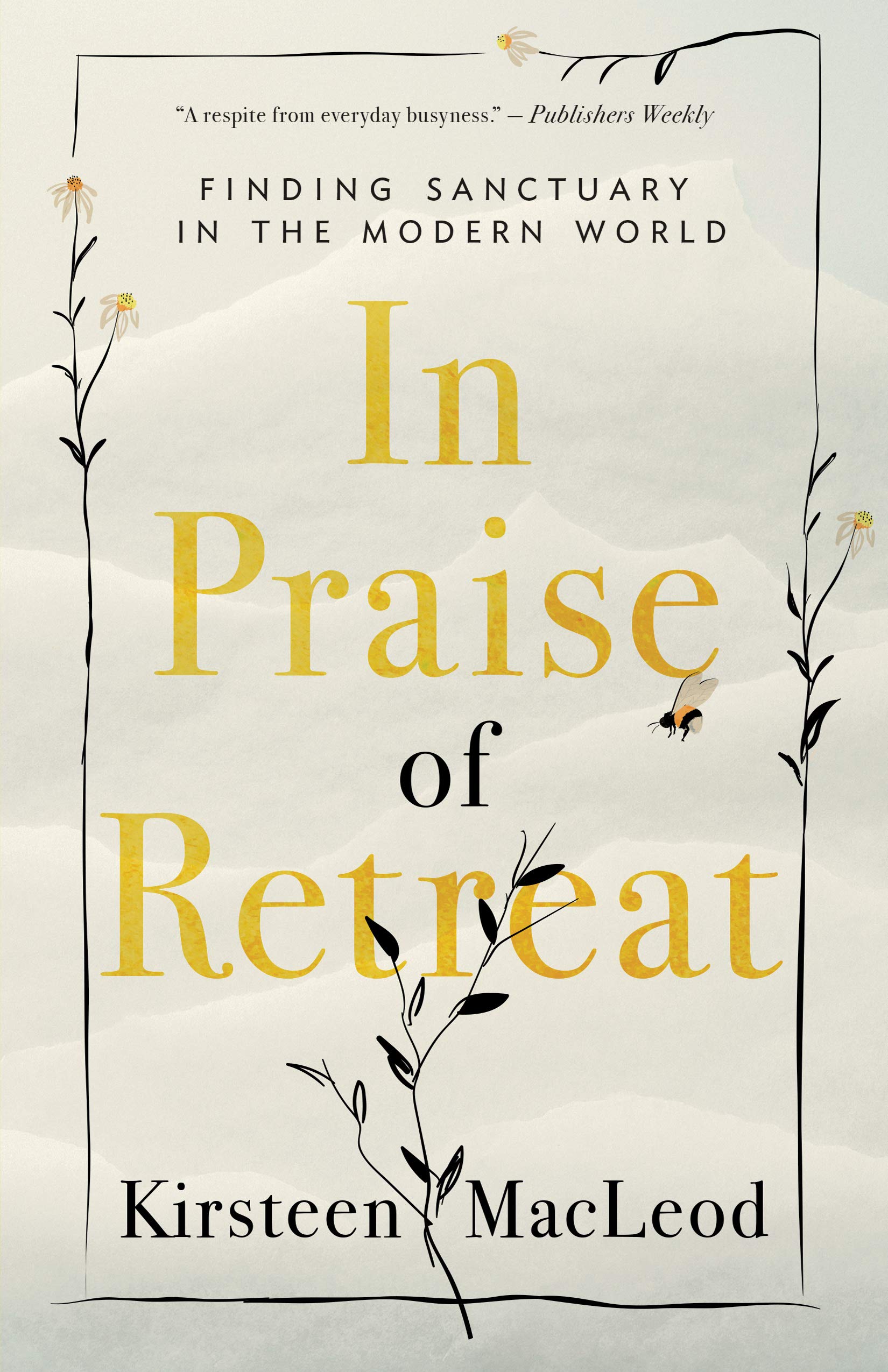
By Ximena Vengoechea
Listen Like You Mean It: Reclaiming the Lost Art of True Connection
This is such an actionable, practical book. I so resonated with concepts such as cultivating a listening mindset, identifying my default listening mode and clarifying my role. I know I’ll be referring to this book and re-reading it for years to come. It’s such a great contribution to those of us who aim to be better listeners. I highly recommend it.
- Find it at a local book seller.
- Buy it used on Amazon.
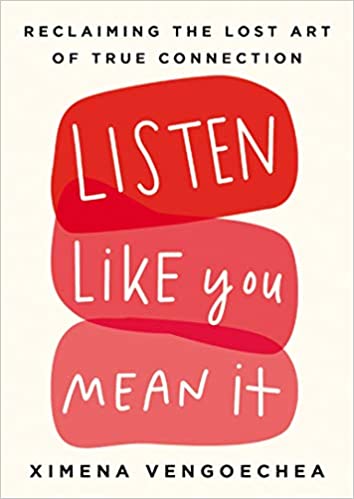
By Kelly McGonigal
The Willpower Instinct: How Self-Control Works, Why It Matters, and What You Can Do to Get More of It
For everyone who has ever wondered why they struggle with temptation, this book will solve the mystery. Using data and research to guide her findings and recommendations, author and award-winning Stanford University psychology instructor Kelly McGonigal offers life-changing intel about the science of willpower and how we can better understand it, outwit it, and harness it. I LOVED this book!
- Find it at a local book seller.
- Buy it used on Amazon.
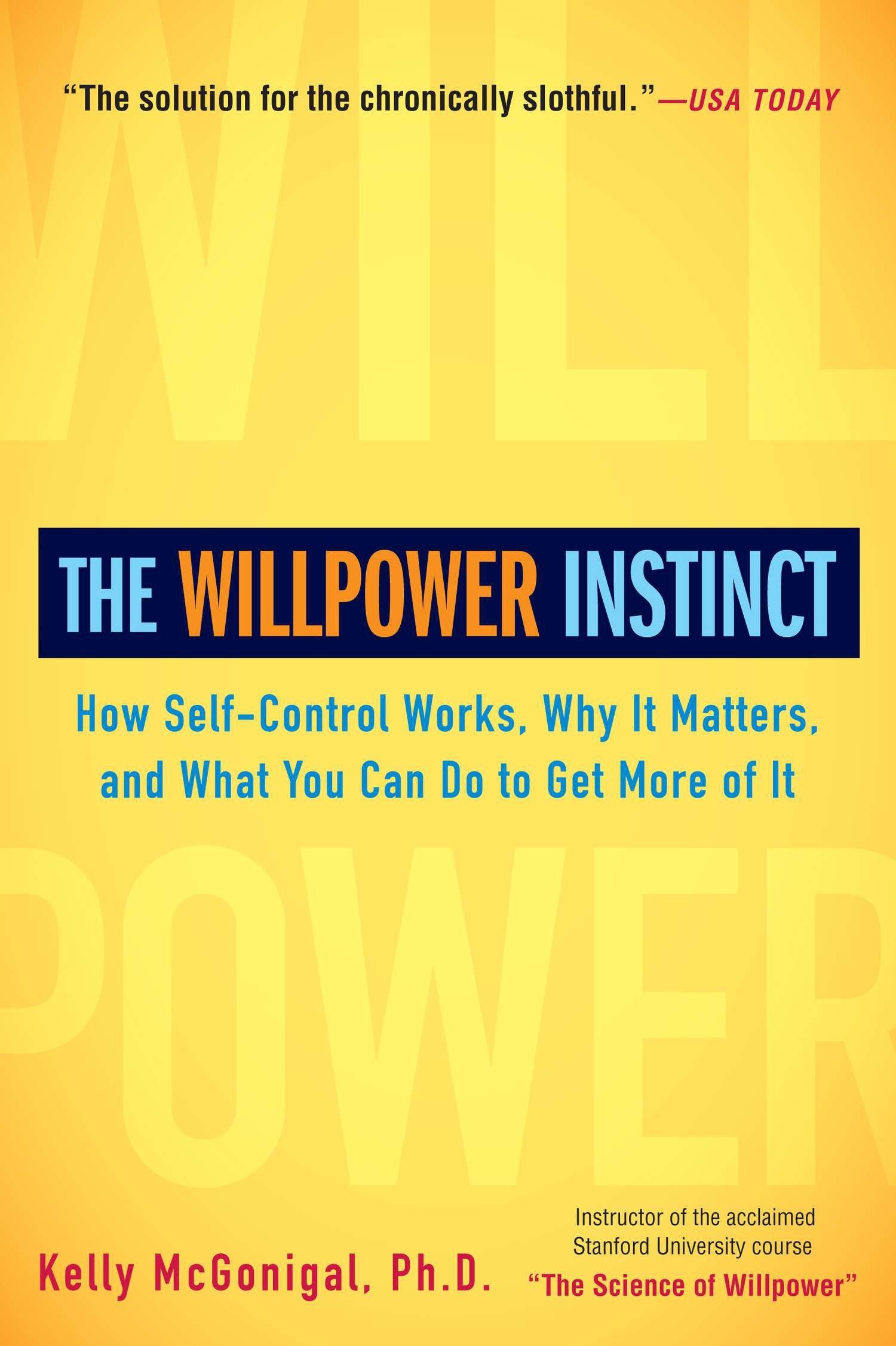
By Brett Blumenthal
52 Small Changes for the Mind: Improve Memory * Minimize Stress * Increase Productivity * Boost Happiness
Filled with bite-sized behavior changes that you can launch weekly over the course of a year, Brett Blumenthal’s book offers practical and realistic suggestions for consistently engaging in our growth.
- Find it at a local book seller.
- Buy it used on Amazon.
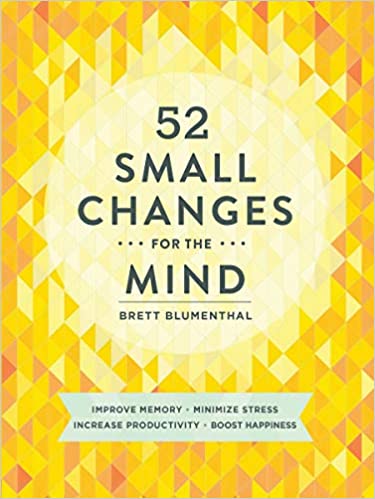
by BJ Fogg
Tiny Habits: The Small Changes That Change Everything
The Tiny Habits method rests on two maxims: #1 Help people do what they already want to do, and #2 Help people feel successful. This approach is all about finding your unique success formula and acknowledging that each of us are on a different path. It also asserts that it is our reliance on motivation and self-control that has muddled and weakened our attempts at creating lasting behavior change. Motivation and self-control aren’t reliable or sustainable. Emotions create change, as Stanford researcher BJ Fogg has proven. When we feel good, we change. When we make small but consistent change, we feel good. Success starts with tiny but sustainable aims. This book is the ideal antidote to the ‘go big or go home’ mentality that causes so many people to fail and feel like failures.
- Find it at a local book seller.
- Buy it used on Amazon.
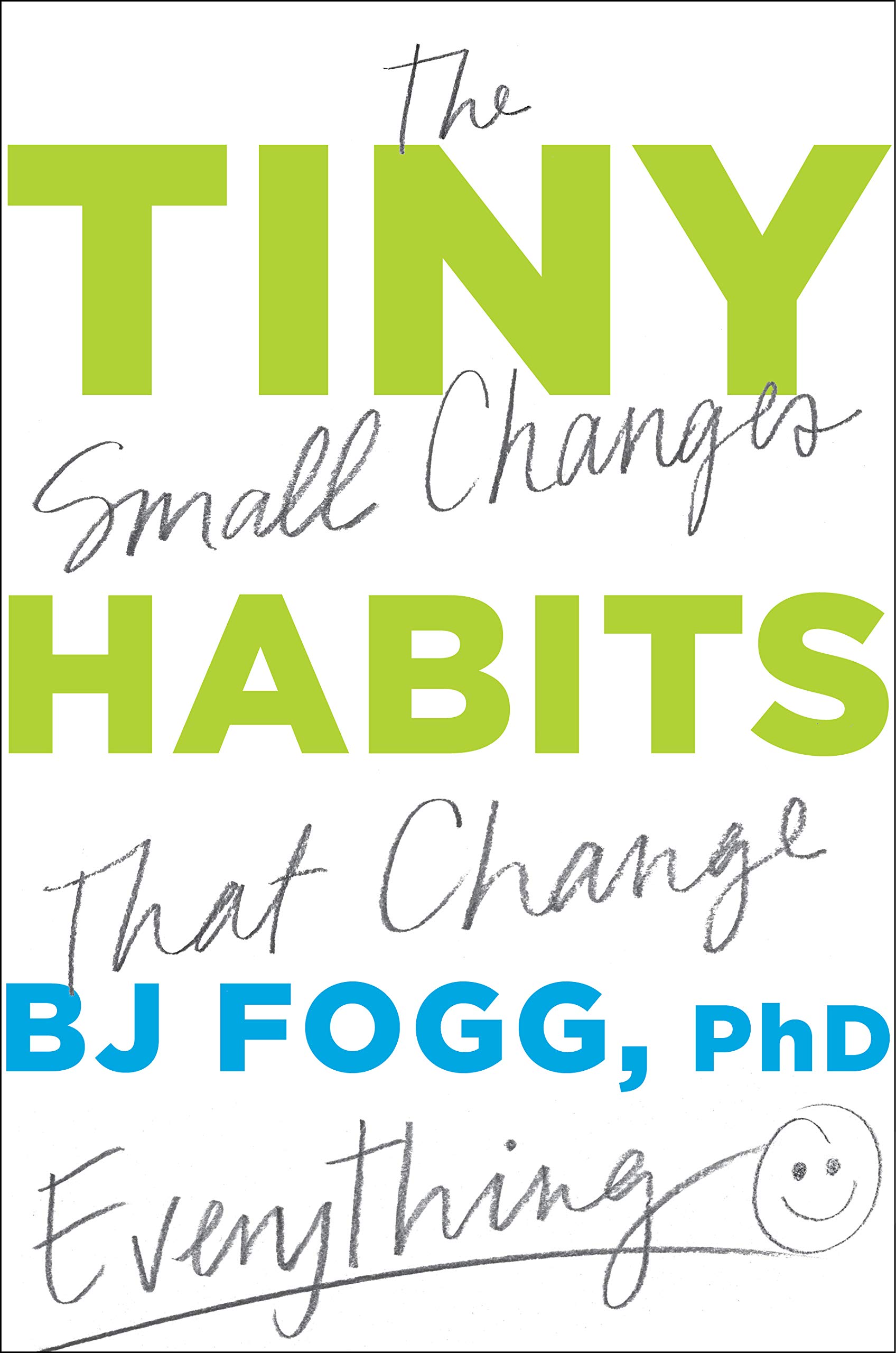
by James Clear
Atomic Habits: An Easy & Proven Way to Build Good Habits & Break Bad Ones Book
There was something relatable and endearing about the way James Clear wrote his book about habits. He breaks down the habit formation process (make it easy, obvious, attractive and satisfying) with a clear formula for how we change behavior, but also how we break our bad habits. It’s a good framework. I can see why this book has been so successful.
- Find it at a local book seller.
- Buy it used on Amazon.
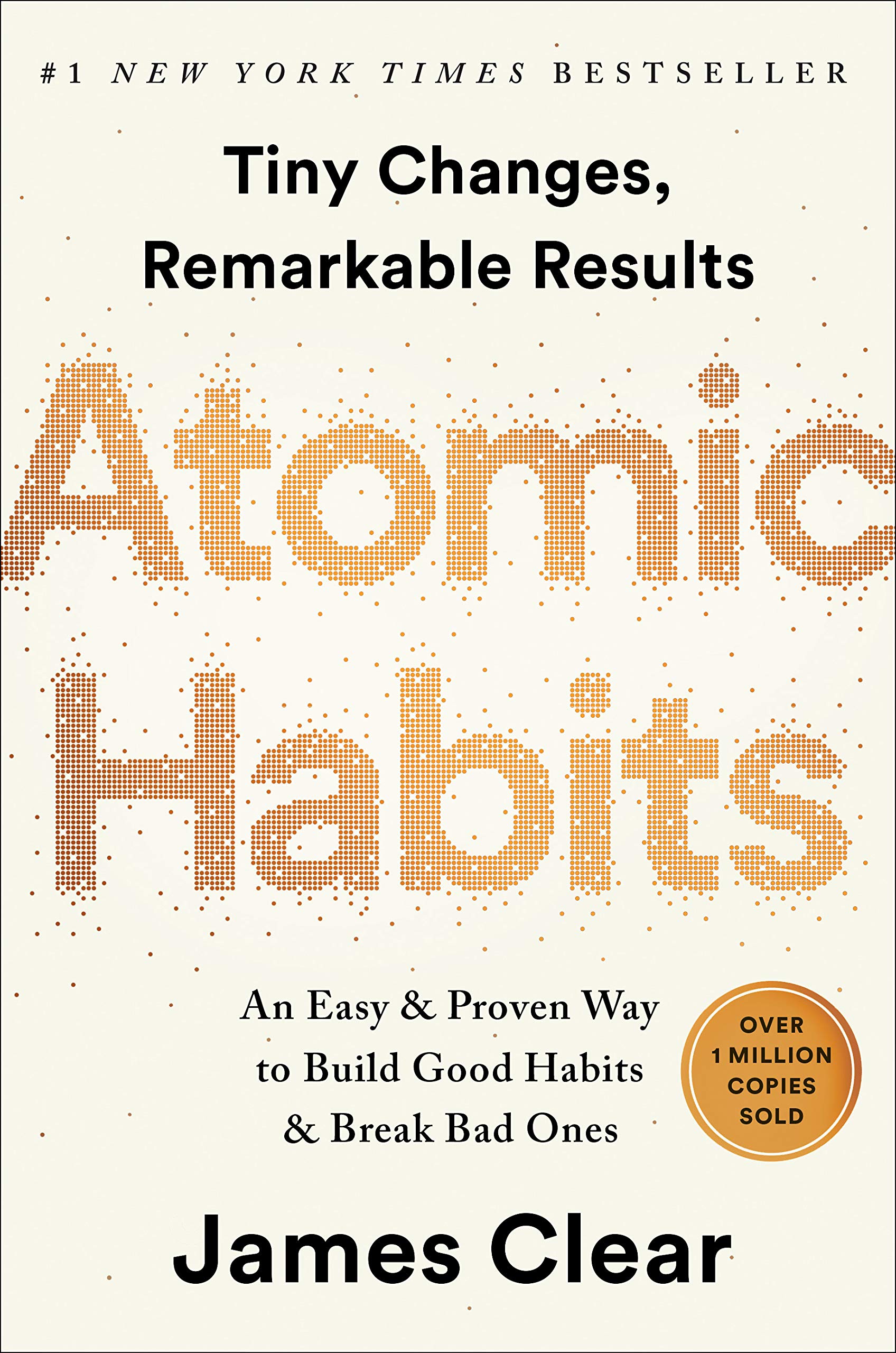
Annie Duke
How to Decide: Simple Tools for Making Better Choices
Large or small, we all make decisions every single day. But how many of us really think about the process we use for making decisions? I never have, which is amazing considering how many major decisions I’ve made so far in my life. What I loved about Annie Duke’s book, How to Decide: Simple Tools for Making Better Choices, is that she provides dozens of tangible, actionable strategies anyone can use for making decision-making clearer and creating more confidence about what we decide. This was the most helpful book I’ve read in 2002.
- Find it at a local book seller.
- Buy it used on Amazon.
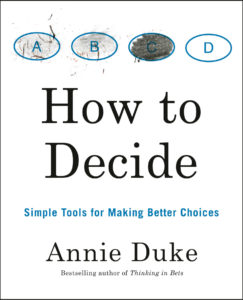
Maci Daye
Passion and Presence: A Couple's Guide to Awakened Intimacy and Mindful Sex
I loved this book! Marrying mindfulness with intimacy makes so much sense, but it had never occurred to me how closely linked they are. Passion & Presence gives couples, even those who feel so stuck and disenchanted, a way forward. Marc and I have been following the insights from Maci’s book and the change in our intimate life has been incredible. I never thought that after 16 years of marriage we’d be able to recreate and reinvent our intimate life. This book has been life-changing for us.
- Find it at a local book seller.
- Buy it used on Amazon.

Rick Hanson
Resilient: How to Grow an Unshakable Core of Calm, Strength, and Happiness
I was surprised by how many facets there are to the process of building resilience. Author Rick Hanson dives into things like grit and mindfulness, but also gratitude, courage and generosity, things I would not have previously associated with resilience. In a nutshell, this book will teach you how to manage life’s challenges, increase your resources and honor your vulnerabilities. It’s not about becoming a super human; it’s about giving ourselves what we need so that we treat ourselves with kindness and cultivate more courage in the process.
- Find it at a local book seller.
- Buy it used on Amazon.
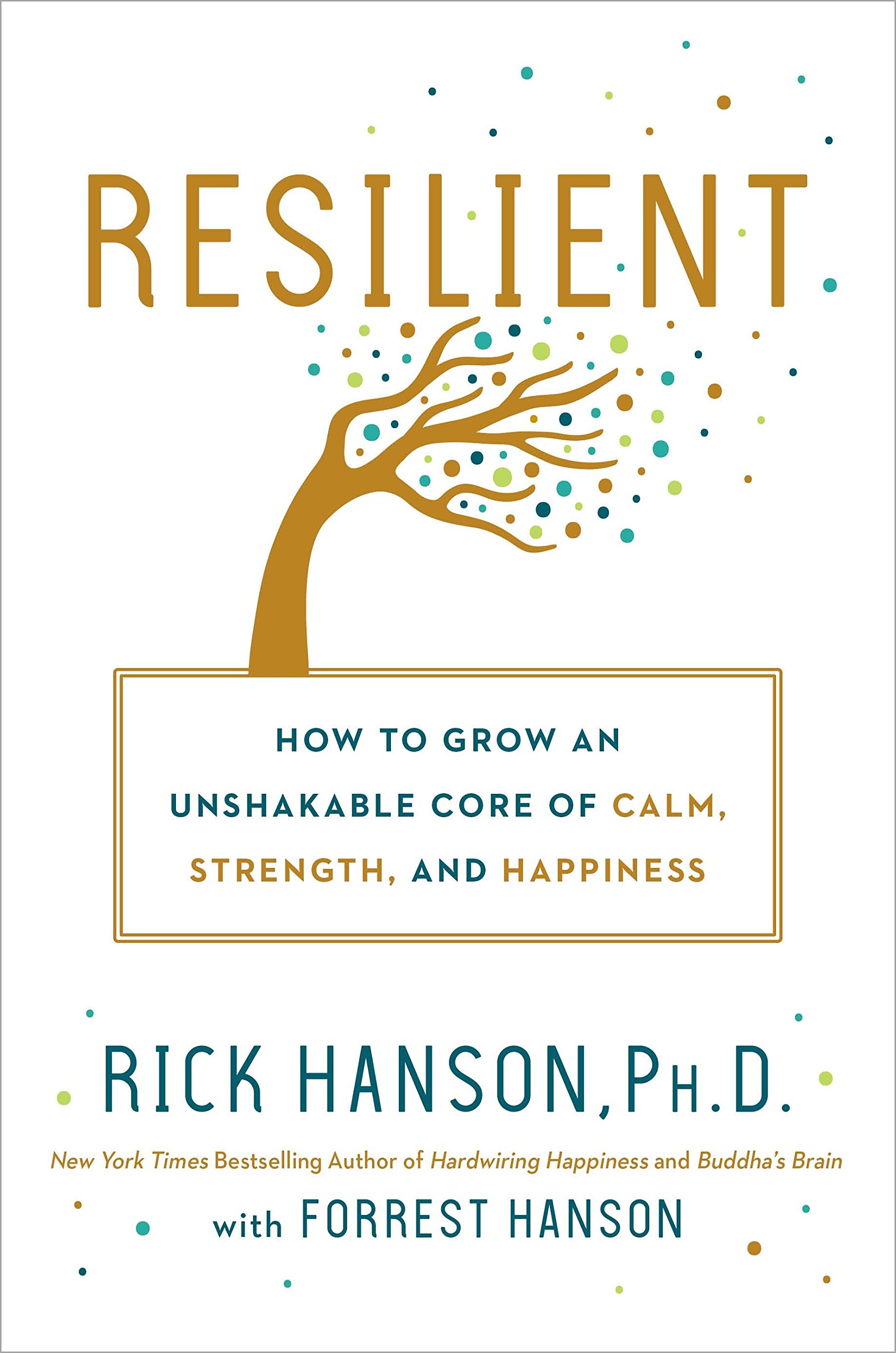
Jennie Lee
SPARK CHANGE: 108 Provocative Questions for Spiritual Evolution, Lee
If you love to journal, this book will blow your mind! “The right question asked at the right time can be life-changing” author Jennie Lee writes. Questions are like doorways, leading us into deeper aspects of our introspection and self-discovery. In her new book, Spark Change, Lee guides readers through 108 thought-provoking prompts designed to deepen our awareness of our innermost inquiries and callings. Sometimes we need a little help to do our deepest excavations. This book is the perfect companion for a deep dive.
- Find it at a local book seller.
- Buy it used on Amazon.

Timothy Dukes
The Present Parent Handbook: 26 Simple Tools to Discover that This Moment, This Action, This Thought, This Feeling Is Exactly Why I Am Here
Packed with wisdom over 26 short chapters, The Present Parent Handbook is an easily digestible collection of insights that can support our parenting regardless of where we are on the journey. There are thousands of parenting books on the market, each offering techniques and tools for better parenting. This one offers just one: be present. This simple yet profound ethos weaves its way into every chapter and serves as a constant reminder that our kids flourish when we inhabit their worlds and make them feel seen.
- Find it at a local book seller.
- Buy it used on Amazon.

Joshua Foer
Moonwalking with Einstein: The Art and Science of Remembering Everything
I found my new favorite genre of book: experiential journalism. In Moonwalking with Einstein, writer Joshua Foer takes his research into the world of mental athletes to new heights as he not only learns from the world’s champions but trains to become one himself. Along the way, he contemplates memorization as an endangered form of learning and he explores our understanding of human memory. Foer eventually competes in the United States Memory Championship and his play-by-play storytelling of this experience is nothing short of spellbinding. I loved this book so much!
- Find it at a local book seller.
- Buy it used on Amazon.
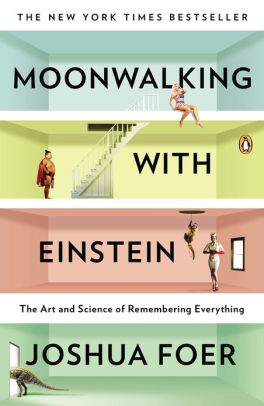
Marta Zaraska
Growing Young: How Friendship Can Add Years to Your Life
It take the craftiness of a clever writer to produce a book that is data and research-heavy but also lighthearted and fun! Marta Zaraska is just this sort of writer. In her deep dive into why things like kindness and connection are just as important as broccoli and bicep curls (maybe even more so!), she invites the reader to rethink all the billions of dollars we pour into the wellness industry in our quest for health and longevity. Turns out a hug is far more likely to impact our health than a pedometer.. and hugs are free! I loved this book. It’s very well written and very well organized.
- Find it at a local book seller.
- Buy it used on Amazon.
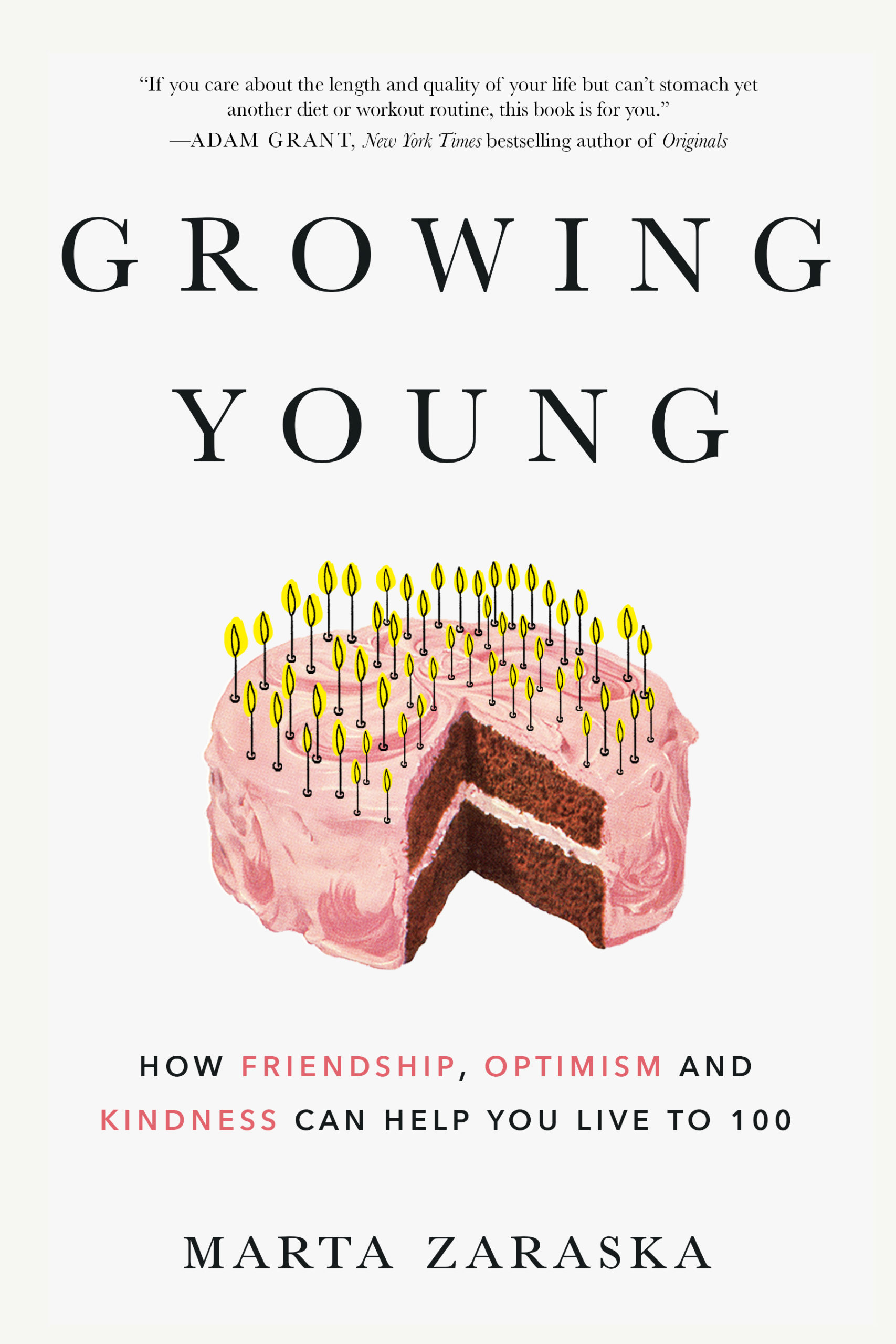
Tiffany Shlain
24/6: The Power of Unplugging One Day a Week
Having had the practice of a weekly secular sabbath for nearly two years now, Tiffany Shlain is speaking my language in her book, 24/6: The Power of Unplugging One Day a Week. Not only does she use the pages to make a very strong case for why we need to unplug from technology and work for 24 hours, but she weaves in her own stories and experiences to inspire readers to see that it’s not only possible but deliciously necessary. She finishes the book with an entire section of resources, including ideas for things to do with your leisure time (and these lists were incredibly helpful!).
- Find it at a local book seller.
- Buy it used on Amazon.
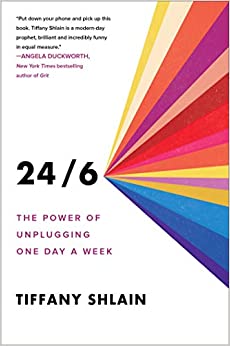
Alanna Collen
10% Human: How Your Body's Microbes Hold the Key to Health and Happiness
Drop into the nerdy world of gut biology and you’ll be as astounded as I was to learn how much our microbiome interfaces with all aspects of our health and wellbeing. Our gut, it turns out, is the epicenter of our immunity, which means it plays an integral role in helping us fight off disease. It also impacts our sleep (it’s where most of our melatonin is created) and our mood (it drives the production of serotonin). And if that wasn’t intriguing enough, we come to learn through Collen’s book that our microbiome is completely populated by foreign bacteria that we truly can’t live without. Many of us have greatly underestimated how important gut health is. Books like this one seek to make it a top priority if we want to live long, happy and healthy lives.
- Find it at a local book seller.
- Buy it used on Amazon.
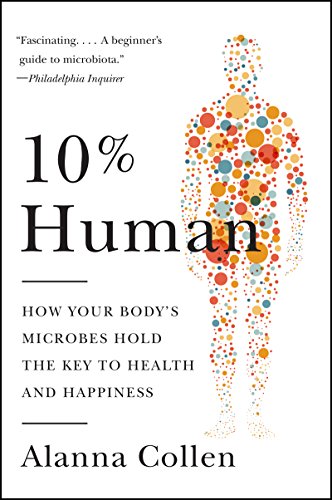
Gretchen Rubin
Better Than Before
I just love the way Gretchen Rubin weaves her own life and anecdotal discoveries together with scientific data and research in this book about how habits are created, maintained and lost. I agree with Gretchen: habits form the architecture of our lives; it’s incredibly important that we understand them. Through this book, I learned so much about how to give myself the best chance of creating new behaviors and eliminating ones that no longer serve me.
- Find it at a local book seller.
- Buy it used on Amazon.
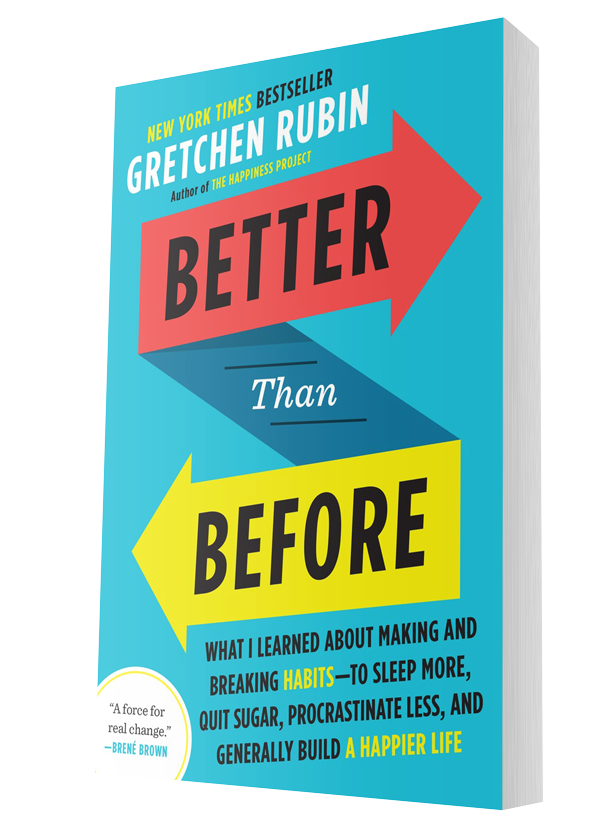
Colin Beavan
How to Be Alive: A Guide to the Kind of Happiness That Helps the World
I may need to read this book a few more times to let all of its wisdom sink in. Author Colin Beavan first captured my attention (and my deep respect) when I read his book, No Impact Man, about his year-long commitment to create zero waste. Perhaps realizing that such an endeavor would be much too difficult for the average consumer, he offers a more moderate approach in How to Be Alive, with an invitation to continue to scale up our efforts to be better global citizens bit by bit. In particular, I loved his insights on how we can intermingle the difference we want to make in the world with our job, hobbies and lifestyle rather than as something separate we do on the side. When we begin to see how ALL of our choices matter (where we live, what we do, what we buy, etc.) we can begin to make subtle (and then grander) changes in the direction of our personal mission. I loved this book!
- Find it at a local book seller.
- Buy it used on Amazon.
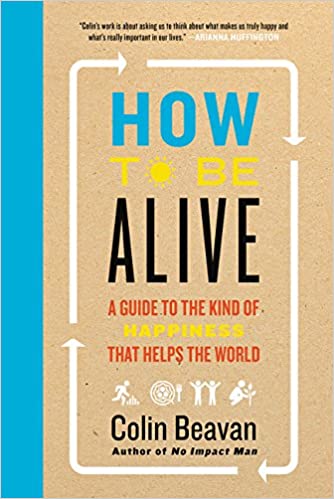
Wayne Muller
Sabbath: Finding Rest, Renewal, and Delight in Our Busy Lives
Our family has recognized a non-religious Sabbath for a few years now but I’ve never really dug into the tradition of the Sabbath (and the Jewish Shabbat) and all of its nuances. There’s so more to it, Muller explained, than simply not working for a day. There are rituals that honor it more deeply and intentional elements that bring it more alive. I learned so many things about our deliberate day of rest, including how we can use it to become more present to joy and love in our lives.
- Find it at a local book seller.
- Buy it used on Amazon.
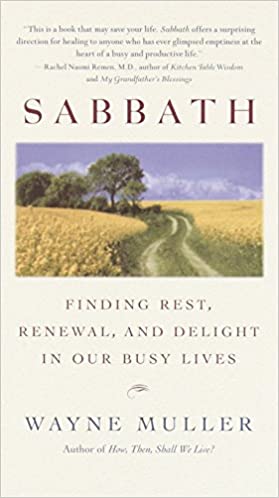
Holly Whitaker
Quit Like a Woman: The Radical Choice to Not Drink in a Culture Obsessed with Alcohol
It really doesn’t matter if you think you drink too much or not; there isn’t a woman on the planet who wouldn’t get value from reading this book. Not only do I applaud Holly Whitaker’s uncensored retelling of all the ways alcohol had made a mess of her life, but I so appreciated that in her recovery she focused on healing the parts of herself that needed it in the first place. Written with equal parts fury and love, this feminist manifesto rightfully rails against the alcohol industry and a western culture that is blinded by the (very profitable) idea that we need alcohol to not only celebrate and commiserate, but to regularly take the edge off of our pain, boredom and self-loathing. This book rewired my mind around alcohol. I will never forget it.
- Find it at a local book seller.
- Buy it used on Amazon.
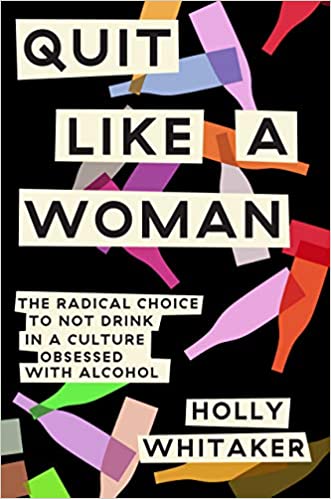
Henry Emmons MD
The Chemistry of Calm: A Powerful, Drug-Free Plan to Quiet Your Fears and Overcome Your Anxiety
I had the opportunity to interview Henry Emmons about this book on my 60 Mindful Minutes podcast and thoroughly enjoyed learning more about why he takes a holistic approach to depression and anxiety (versus simply prescribing drugs). Henry believes we all have a container of resilience that we draw from each day to feel confident, centered and content. And while some have a bigger container than others, we all have the ability to keep our containers replenished by doing things every day for our wellbeing. Things like sleep, diet, nutritional supplements, exercise and mindfulness all increase our ability to handle what life throws at us. Even those who don’t suffer from depression or anxiety will benefit from this book.
- Find it at a local book seller.
- Buy it used on Amazon.

Tara Brach
True Refuge: Finding Peace and Freedom in Your Own Awakened Heart
There are countless helpful insights and guided practices in this book. Tara Brach weaves her ageless wisdom with so much compassion and empathy for the ways we humans struggle. Her stories of people she has coached were immensely helpful for bringing her teachings into the real world. This is a book I’m sure I will pick up again and again. It’s one to read slowly and thoughtfully.
- Find it at a local book seller.
- Buy it used on Amazon.
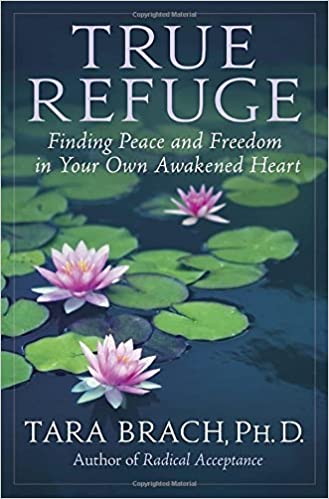
Glennon Doyle
Untamed
This book had me feeling so much. Fury. Righteous indignation. Peace. Love. Forgiveness. Joy. So many feelings. An unapologetic and fiercely vulnerable account of the recreation of the author’s life, Untamed invites us all to ask… what do we really, really want and what the heck is stopping us from claiming it? I was inspired and fired by the time I finished this book. Most of all, I am in awe of Glennon’s honesty, all the while knowing she’ll change, grow, evolve or see things differently by the time she writes her next book, but never shying away from saying what’s true now. So, so brave.
- Find it at a local book seller.
- Buy it used on Amazon.
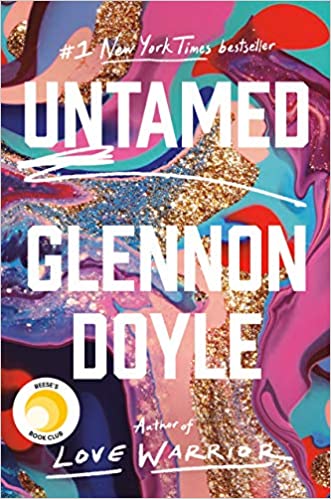
Paulo Coelho
The Alchemist
The Alchemist has long been a traveler’s companion. I came to it not unlike many of its readers: it was given to me by a fellow nomad, a must-read for anyone setting out to see the world and all of its wonders. I first read it in Australia in 2001 and have gifted it and reread it many times since. For those who have loved this Paulo Coelho bestselling phenomenon, the treasure Santiago seeks is an obvious metaphor. It is the thing that calls us to set our lives aside and with faith and courage embark on an unknown path, often facing trials and triumphs. For some that treasure could be a staggering view, a grand adventure, an unfathomable encounter. But perhaps what the author really wants us to see is that the treasure is the journey itself. And to trust that the universe is designed to aid our journey.
- Find it at a local book seller.
- Buy it used on Amazon.
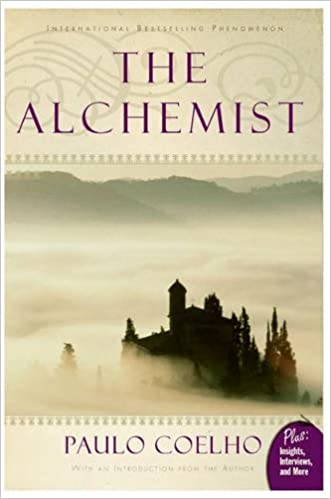
Andrew Forsthoefel
Walking to Listen: 4,000 Miles Across America, One Story at a Time
I was so endeared by Andrew Forsthoefel within the first few chapters of his book, and my respect and awe of him only grew with each passing page. Of course, I had the thought, “I wish I had his mindset and bravery when I was 23,” but mostly I just felt deeply grateful that he DID have the mindset and bravery to embark on such a soulful quest and that he shared (so eloquently and honestly) what he saw and learned with me, the reader. He’s such a good writer and this is such a heartwarming story. I can’t recommend it highly enough.
- Find it at a local book seller.
- Buy it used on Amazon.
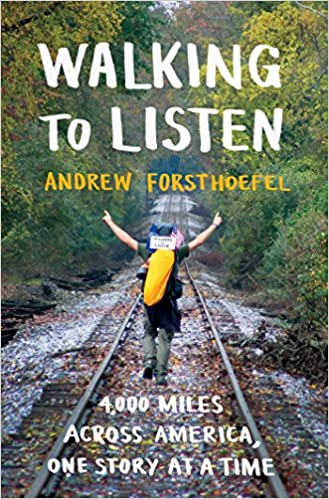
Nancy Davis Kho
The Thank-You Project: Cultivating Happiness One Letter of Gratitude at a Time
A few years ago, I took on the challenge of writing 365 thank-you notes in a single year. The idea was to create action around my gratitude, to not just write what I was grateful for in a journal, but to express it to the person I was thankful for. It was such a fun project… but I think I might love Nancy Davis Kho’s approach to deliberate gratitude even more. As Nancy neared a milestone birthday, she decided to write 50 thank-you letters to express her appreciation to the many people who had influenced her, helped her, and inspired her over her life thus far. She shares her process and its outcome in her delightful book, which I highly recommend.
- Find it at a local book seller.
- Buy it used on Amazon.
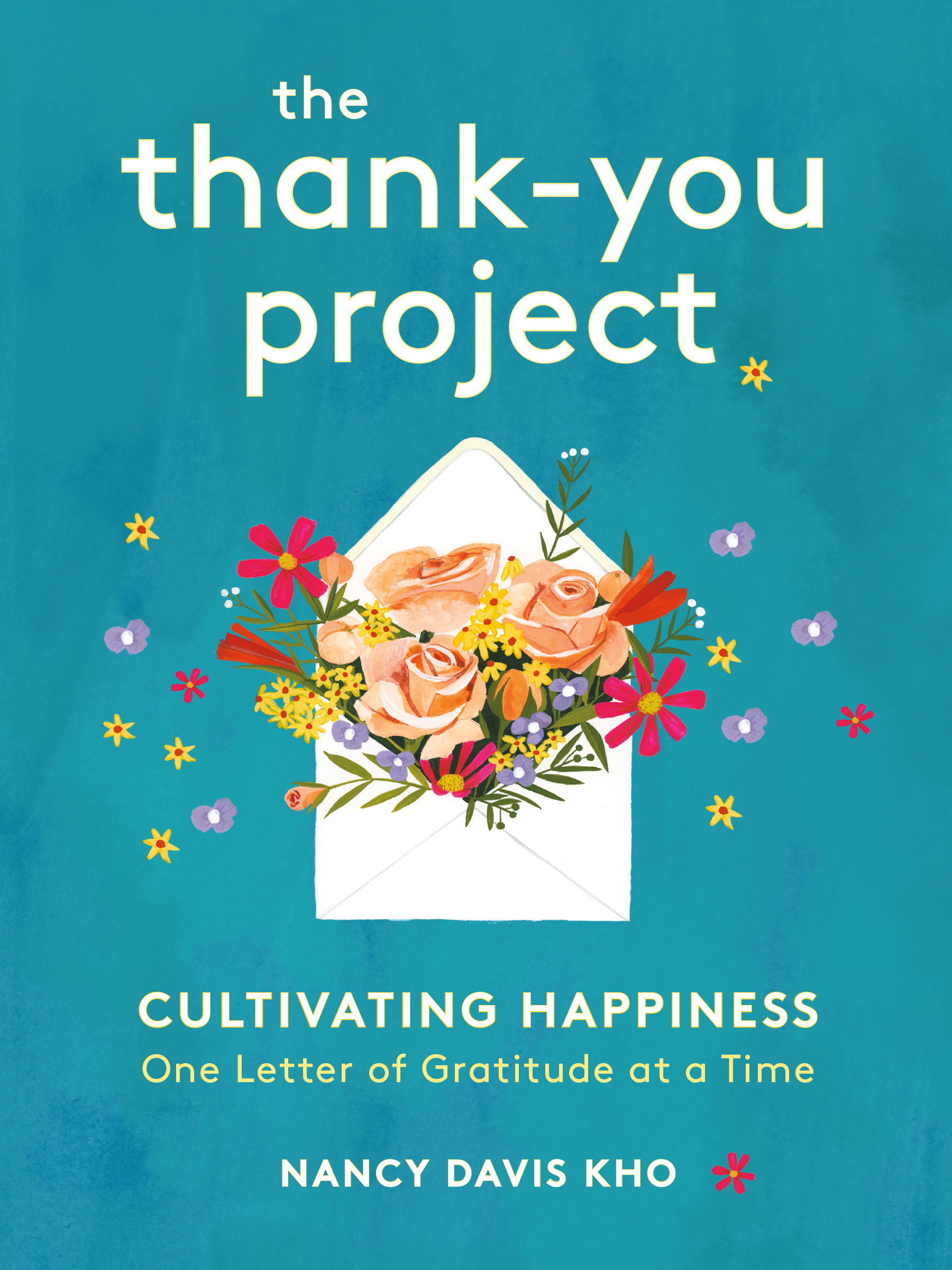
Dani Shapiro
Still Writing: The Perils and Pleasures of a Creative Life
I could read this book a hundred times and still find joy in it. In her usual poetry and rawness, Dani Shapiro takes the reader into her writing process, without editing away all the pain and the pleasure it entails. Whether you have aspirations to be a writer or just want to better appreciate what you read, pick up this book.
- Find it at a local book seller.
- Buy it used on Amazon.
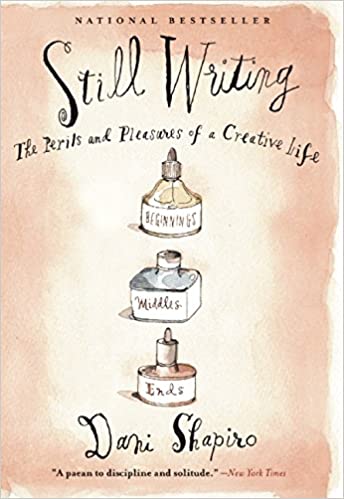
Isabel Gillies
Cozy: The Art of Arranging Yourself in the World
I’m sure I wasn’t the only one who thought this book was about hygge (the Dutch practice of enriching our lives with coziness and comfort) but Isabel’s book actually runs several layers deeper. It’s less about candles and blankets and more about our innate ability to comfort ourselves, to come to our own rescue, to steady ourselves, and to come home to our moments. It’s about discovering the truth of who we each are and how we tick on a deep, deep level. Finally, it’s a book about mindfulness and the skill we can all develop with practice: savoring the living of our lives.
- Find it at a local book seller.
- Buy it used on Amazon.
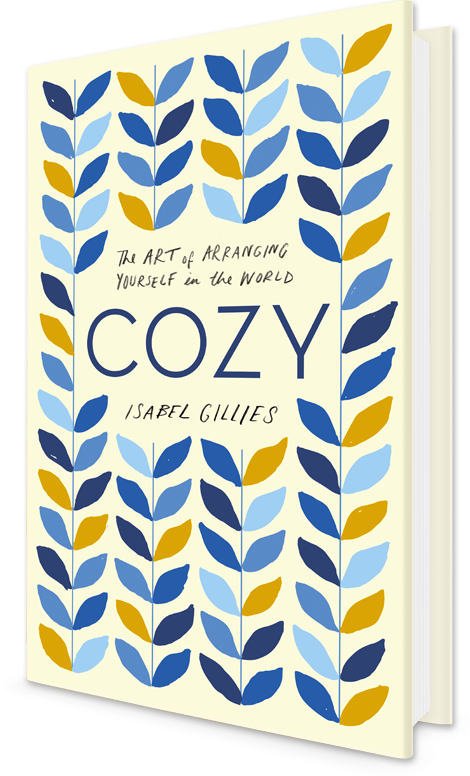
Kate Hanley
How to Be a Better Person: 400+ Simple Ways to Make a Difference in Yourself--And the World
Turns out the number one New Year’s Eve resolution these days isn’t to lose weight or to quit smoking… it’s to be a better person. But what does that even mean? Kate Hanley unpacks this concept over 400 easily digestible insights and ideas for how we could start orienting our lives to be our best for ourselves and the world. Pick it up and flip to random pages or work through all 400 ideas page by page (checking off the boxes as you g0). Either way, Kate’s book will give you a guide for easily implementing more intentional goodness in your day.
- Find it at a local book seller.
- Buy it used on Amazon.
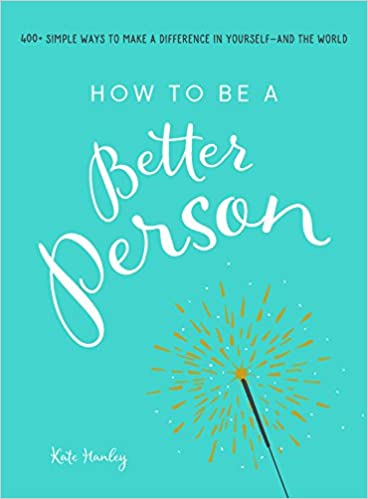
Greg McKeown
Essentialism: The Disciplined Pursuit of Less
This book serves as an inoculation, when applied, to the addiction to “busy” so many of us face. I mistakenly assumed this book would be dry but McKeown has takes such a warm approach and weaves in several touching stories from his own life and experience that the book was anything but. At its essence, the book provides the inspiration and practical strategies for reordering one’s life to reflect what really matters. It renewed my commitment to the discipline of focusing on my essentials and gracefully eliminating everything else.
- Find it at a local book seller.
- Buy it used on Amazon.
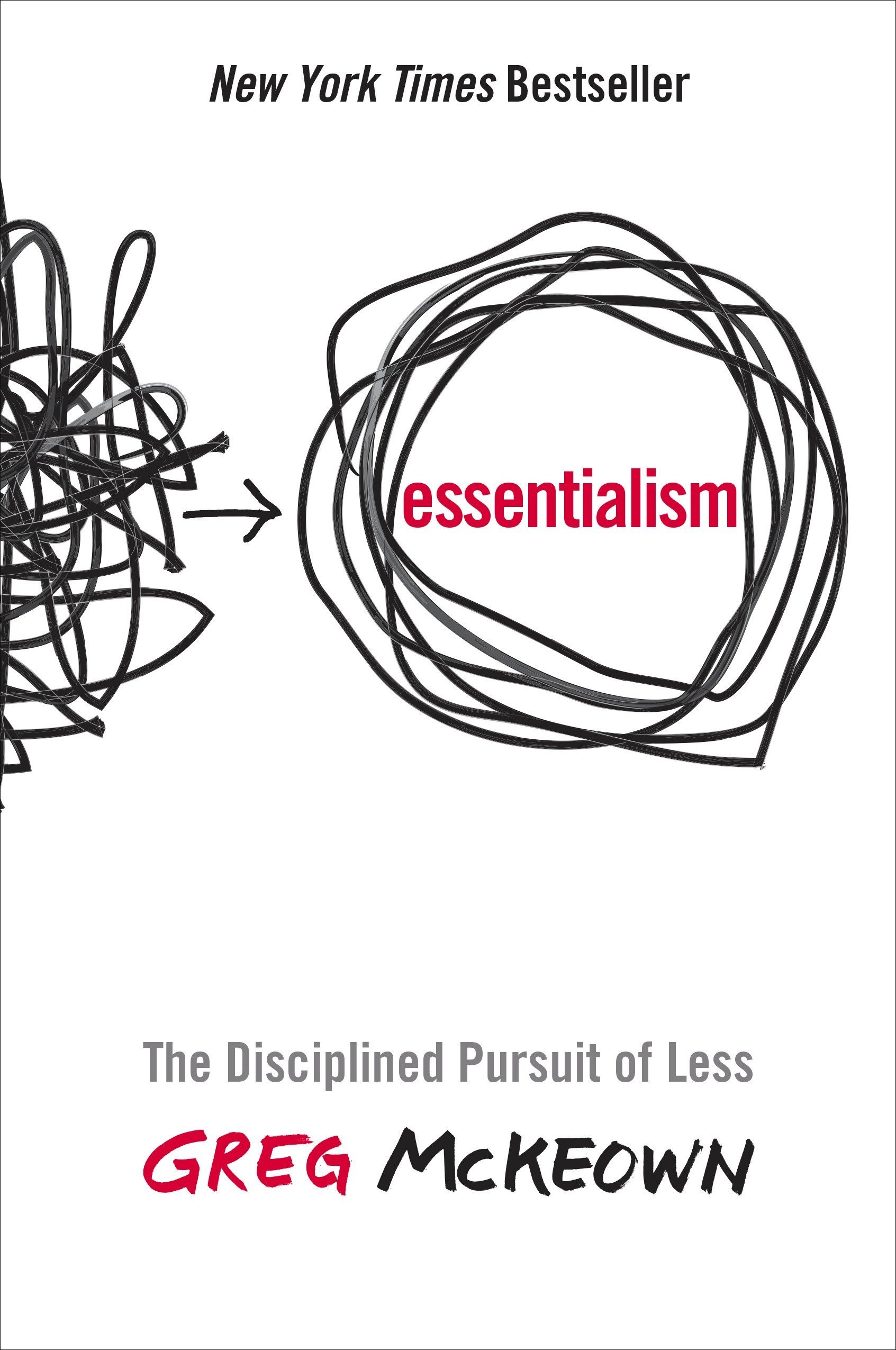
Raphael Cushnir
The One Thing Holding You Back: Unleashing the Power of Emotional Connection
What a thought-provoking book! Between its covers, author Raphael Cushnir ponders the idea that what stops us from achieving our goals and fulfilling our dreams isn’t a lack of time, money or opportunity… it’s our resistance to negative emotions! Any time we see a lack or progress or momentum in the direction of what we hope to achieve, we might look to see if perhaps something much more deep-seated is in the way. Listen to our discussion on episode 64 of the 60 Mindful Minutes podcast.
- Find it at a local book seller.
- Buy it used on Amazon.
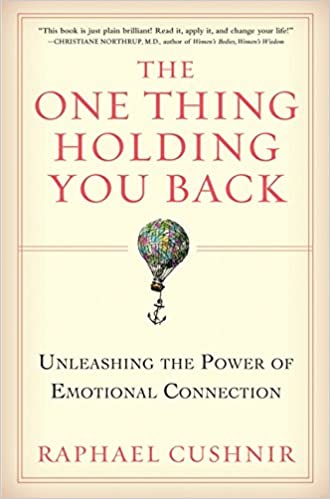
by Glennon Doyle
Love Warrior: A Memoir
It took me far, far too long to finally get around to reading this book, and now it will be one I never forget. A raw and sometimes unbearably honest account of Doyle’s bulimia, alcoholism and heartache, Love Warrior takes readers on a journey of one woman’s discovery of who she really is and how she got back home. Her story-telling is riveting but also artful. Even if you don’t agree with her or find her confronting, no one can deny that Glennon Doyle is a magnificent writer. Now I finally understand why she is so celebrated.
- Find it at a local book seller.
- Buy it used on Amazon.
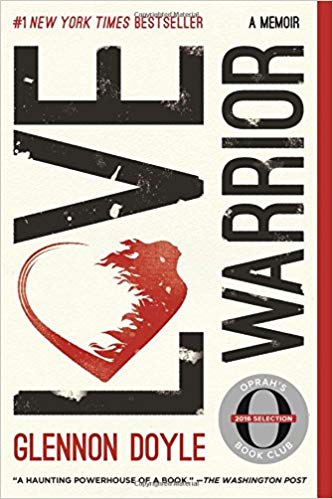
Robin S. Sharma
Who Will Cry When You Die
You could fly through this book filled with 101 mini chapters and walk away with a countless number of thoughtful insights to continue to contemplate long after you set it on your book shelf. There were so many well-worded nuggets of wisdom; almost every page of my book has at least one line underlined or starred. Ultimately, Who Will Cry When You Die serves a handbook for anyone wanting to live more fully and intentionally.
- Find it at a local book seller.
- Buy it used on Amazon.
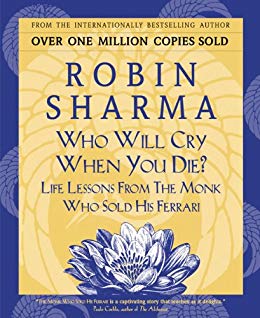
Michael A. Singer
The Untethered Soul: The Journey Beyond Yourself
Much like some people have a top shelf for their liquor, I have one for my books. Only a handful make my list of my “top shelf books” and this is definitely one of them. In fact, no book has changed my life and my mind like this one. Why? Because with clarity and simplicity, Michael Singer brings so much understanding to this critical foundation of our emotional wellness: “There is nothing more important to true growth than realizing that you are not the voice in your mind–you are the one who hears it.” Read this book and it has the potential to rewire who you are.
- Find it at a local book seller.
- Buy it used on Amazon.
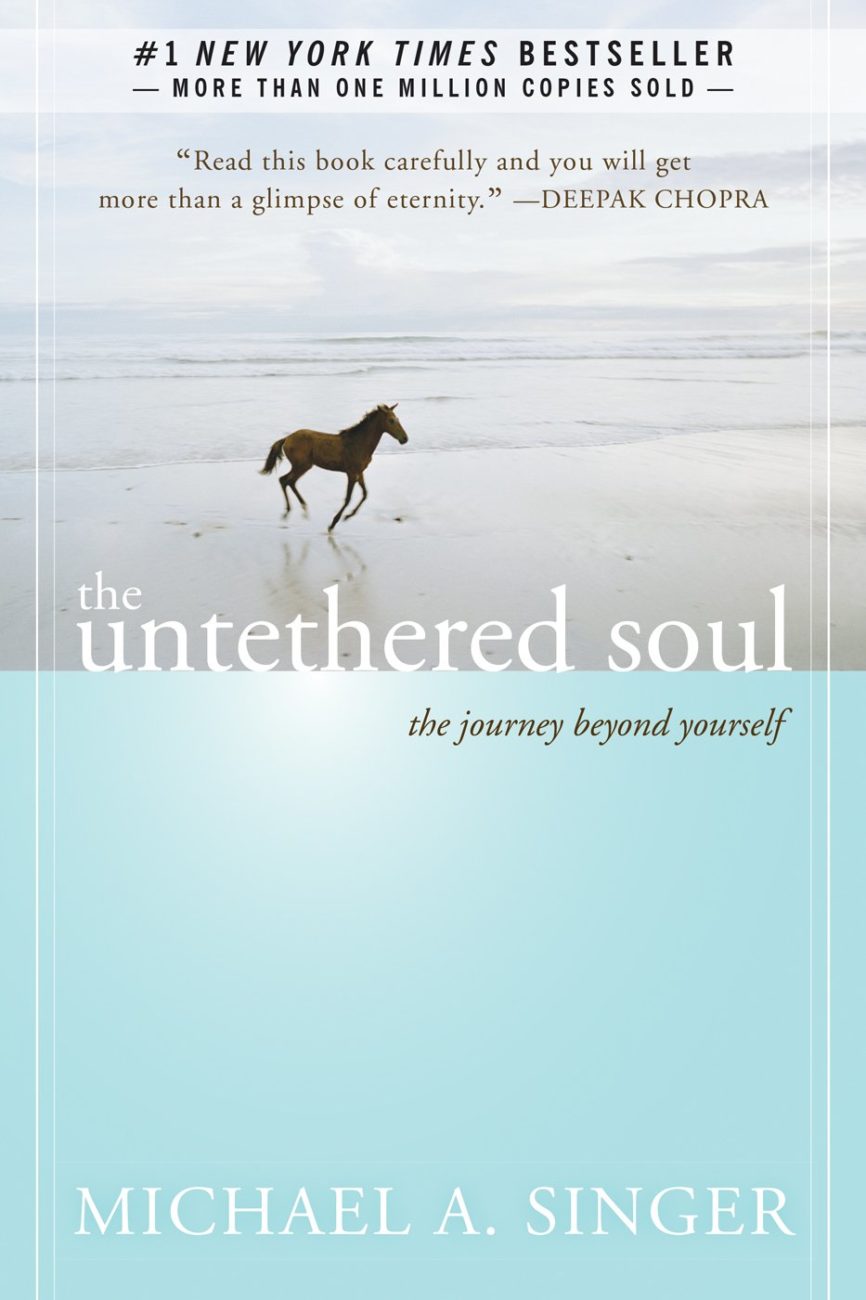
Robert B. Cialdini
Influence: The Psychology of Persuasion
There is a power wielded over us that most, myself included, are mostly unaware of. This power influences so many of our decisions, including many that don’t bring about positive results in our lives (such as buying things we don’t need). This is a pretty nerdy book but the intel is solid, as is this message: we need to be aware of how we are influenced so that we can be more skilled at defending against these tactics.
- Find it at a local book seller.
- Buy it used on Amazon.

Kate Northrup
Do Less: A Revolutionary Approach to Time and Energy Management for Busy Moms
I love it when a book blows my mind! For starters, Kate Northrups’s insights into how we can start aligning our output with the lunar and menstrual calendar was truly revolutionary to me. I loved her chapters on how to ask AND receive help. I loved her ethos grounded in consciously curating what makes it into our calendars and to-do lists. This book was refreshing, fun to read, thought-provoking and action-inspiring.
- Find it at a local book seller.
- Buy it used on Amazon.
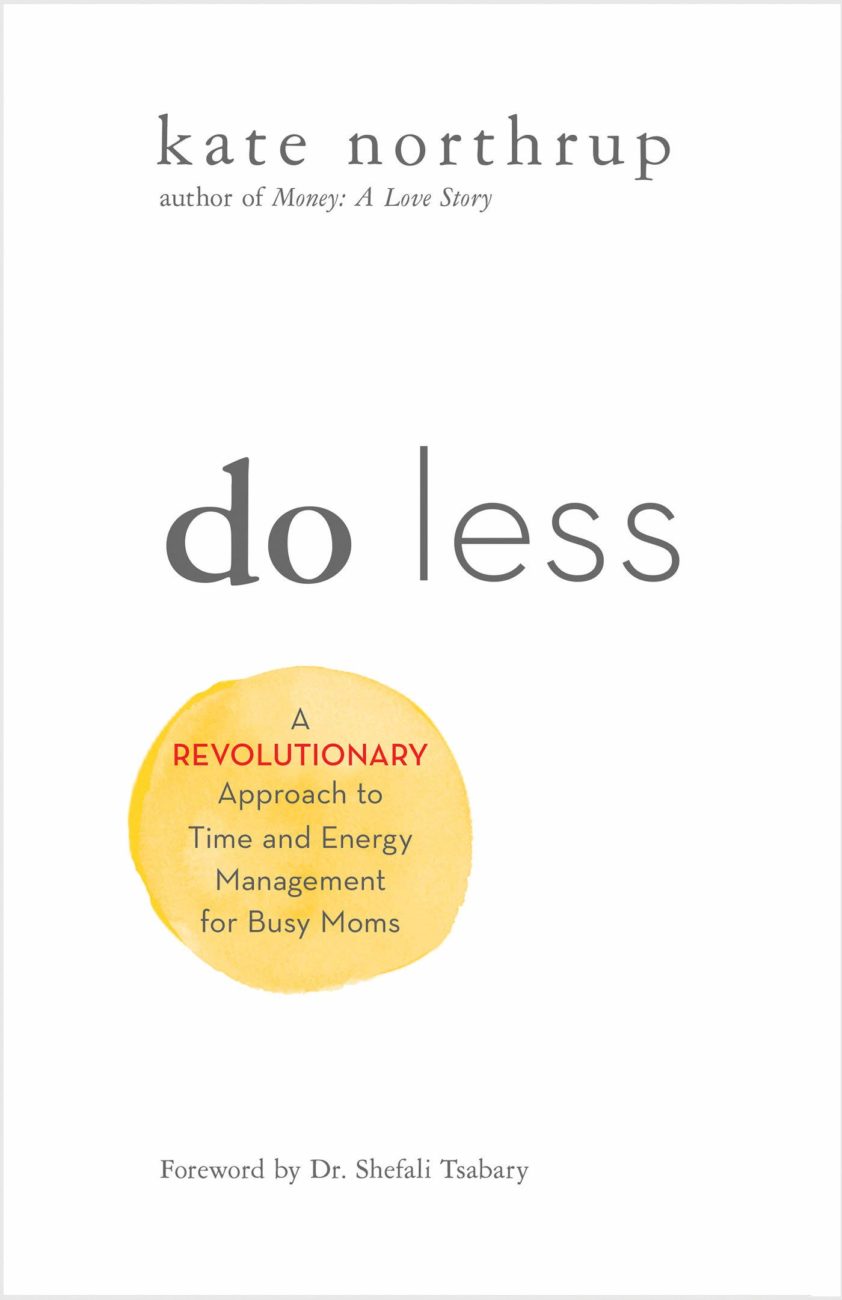
Jon Kabat-Zinn
Falling Awake: How to Practice Mindfulness in Everyday Life
This is the first Jon Kabat-Zinn book I have read. Being one of the world’s foremost teachers of mindfulness, I expected it to be filled with useful and thoughtful insights. Of course, it was. Unexpected was how beautifully it was written. On a practical level, it was filled with interesting ideas for dropping into the moment. In particular, I loved his idea of using yoga as a way to cultivate mindfulness by using the movement as the object of the meditation. I started doing this a few mornings a week (by candlelight). “Through the practice of mindful yoga, we can expand and deepen our sense of what it means to inhabit the body and develop a richer and more nuanced of the lived body in the lived moment.”
- Buy it used on Amazon.
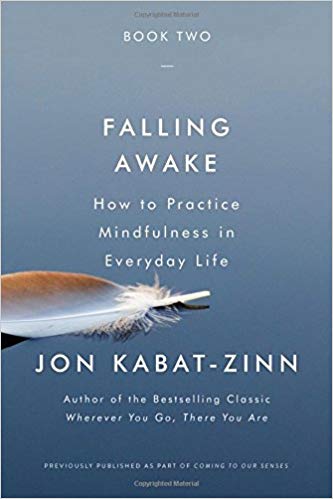
Stuart Browning
Play: How it Shapes the Brain, Opens the Imagination and Invigorates the Soul
Stuart Browning strikes the perfect balance between science/research-based arguments and his own anecdotal experience to make a case for why a lack of play should be considered akin to malnutrition. I closed this book with a deepened sense of awareness of how critical fun, novelty and whimsy is to our sense of wellbeing, social cohesiveness and overall satisfaction with life. One thought to ponder: “Sustained emotional intimacy is impossible without play.” Chew on that!
- Find it at a local book seller.
- Buy it used on Amazon.
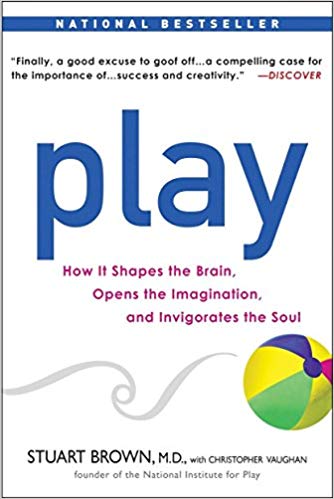
Gretchen Rubin
The Happiness Project
Gretchen Rubin is my spiritual animal. She tackles the goal of upgrading her overall happiness with her life like a surgeon, methodically devoting each of twelve months to making small but meaningful changes. The result is an inspiring, quirky and very entertaining account of how she brought more joy, love and simple contentment to her life.
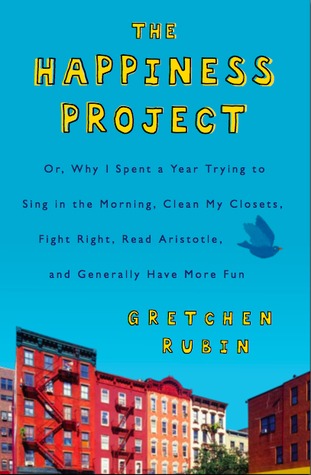
Paul Kalanithi
When Breath Becomes Air
How it feels to die is not a common topic in our culture. In fact, most avoid talking about death altogether, as if by talking about it we might catch it like a cold. So, it was equally refreshing and jarring to read Paul Kalanithi’s account of his cancer diagnosis and the quick descent into his debilitating illness. I felt grateful to be given a glimpse into such a private experience. Yet, what impressed me most about this book was not just the account, but that by writing his story the author fulfilled a longtime dream to be a writer. And a writer he was! This book was penned with a stunningly eloquent effort that adds a layer of atypical richness to the reading of it.
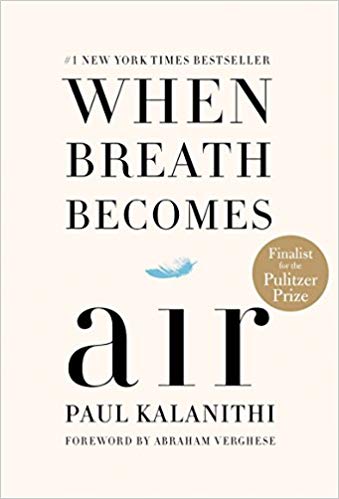
Light Watkins
Bliss More: How to Succeed in Meditation Without Really Trying
There must be hundreds, maybe thousands, of books written about how and why to meditate. I’ve read a handful of them but none have approached this time honored tool the way Light Watkins has. Instantly relatable and immediately applicable, the instruction Light offers up in his book changed my meditation practice for the better the moment I began applying his recommendations. This book is a must for anyone who thinks they can’t meditate.
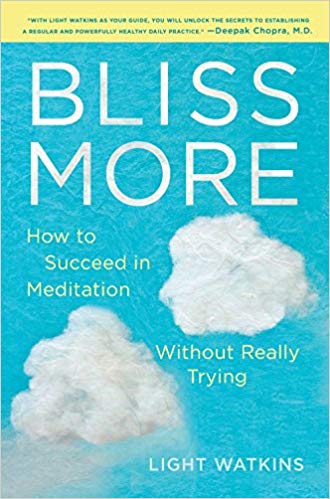
A. J. Jacobs
Thanks A Thousand: A Gratitude Journey (TED Books)
A.J. Jacobs brings the reader on a journey deep into the world of the daily cup of Joe. This book was as interesting as it was funny. Through its pages, I learned so much about how coffee lands in my cup but also I was moved by the author’s devotion to being grateful not for what’s immediately in front of him, but for the invisible efforts that remain hidden from his daily view. I love that he went digging to find all the people to thank for his coffee. It was so silly but also so inspiring.
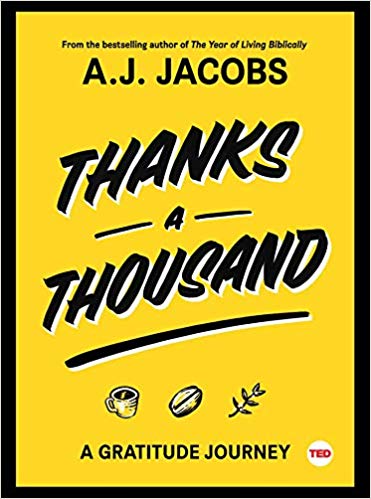
Tara Westover
Educated: A Memoir
This book has received massive popularity and accolades. Read it and you will immediately understand why. A story of a girl rising, against all odds, beyond a unimaginably sheltered childhood, the book is at times unfathomable, scary, exhilarating and sad. I can’t imagine how many years of therapy Tara Westover needs to make sense of her life. Or maybe she just needed to write one amazing book! Pick it up and I bet you won’t be able to put it down.
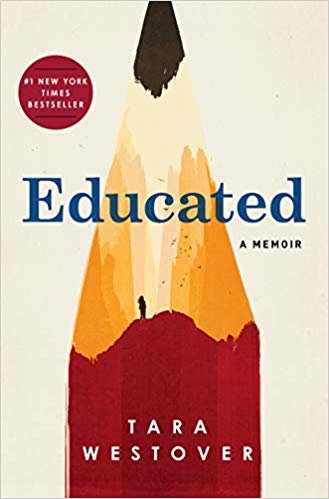
William Stixrud and Ned Johnson
The Self-Driven Child: The Science and Sense of Giving Your Kids More Control Over Their Lives
Authors William and Ned offer up a ‘parent as consultant’ approach to raising kids into thriving adults. As a child’s capacity to make and act on his/her own decisions, the parent slowly removes the scaffolding to provide counsel but not control, support but not domination. The result, in theory, is a child who sees him/herself as capable and skillful, no longer in need of his/her parent’s nagging and constant oversight. I loved this book!
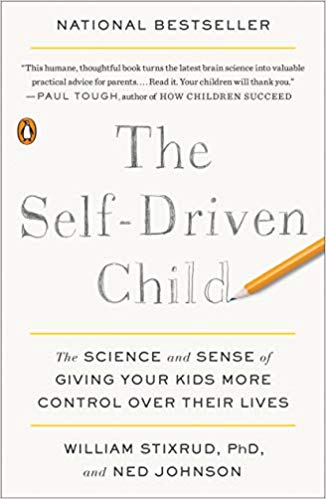
Sebastian Junger
Tribe: On Homecoming and Belonging
A raw and poignant rally cry for our undeniable need for more human connection, Tribe by Sebastian Junger offers the reader an invitation to see their role in their community as more vital than they may have believed. You can read this book in one sitting but its ferociousness and passion will linger for years.
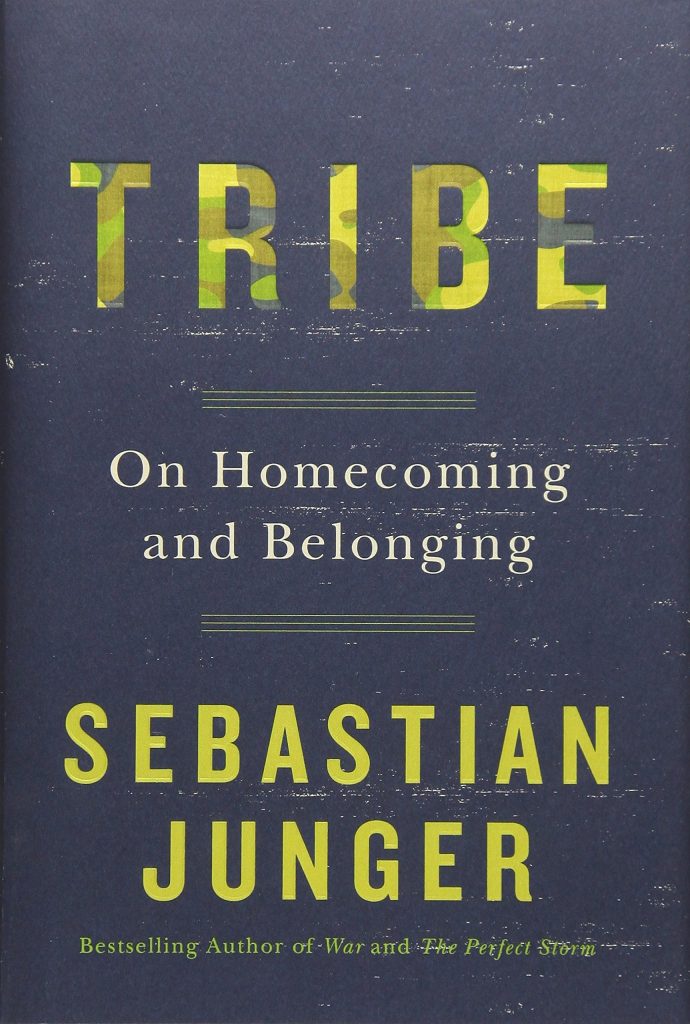
Dr. Laura Markham
Peaceful Parent, Happy Siblings: How to Stop the Fighting and Raise Friends for Life
If you’re a parent with more than one child, you know the feelings of heartbreak and frustration you experience over their bickering and battles. Through Dr. Laura Markham’s book, I learned that sibling conflict is not only a healthy way kids learn to deal with conflict out in the world, but how much my reaction to the conflict can either quell or exacerbate it. Modeling our own peacefulness, taking on the role as interpreter (rather than referee), and bringing more consciousness to how we might accidentally be the cause of much of the root of sibling rivalries. The concepts and ideas in this book were instantly applicable, many with immediate results.

Marshall Goldsmith
Triggers: Creating Behavior That Lasts - Becoming the Person You Want to Be
Why do we do what we do, even when we say we want to behave differently? Through his own research and the scientific findings of others, Marshall Goldsmith lays out a case for why so much of our inability to harness our willpower has more to do with our environment than our self-control. Goldsmith makes a strong case for how we can set ourselves up for success, including being about to predetermine our usual saboteurs and plan accordingly.
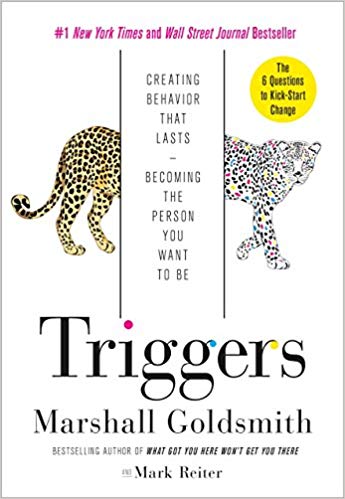
Courtney Carver
Soulful Simplicity: How Living with Less Can Lead To So Much More
I have so much of this book underlined and starred. Rather than sit on a soap box and sermonize about the morality of minimalism, Carver merely shares her own, personal journey to discover that having more didn’t give her more joy, peace or love. In fact, quite the opposite. “Through the process, I discovered that it isn’t about organizing things or just getting rid of stuff. Those are the mechanics and certainly part of it, but simplicity is about more than making space in your home. It’s also about creating more time in your life and more love in your heart. What I learned is that you can actually BE more with less.”
I interviewed Courtney Carver in Season One of the Synced Life Podcast. You can listen to that conversation here.
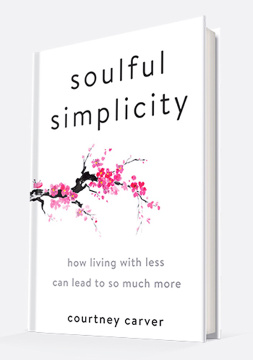
Got recommendations for me?
I’d love to hear them.